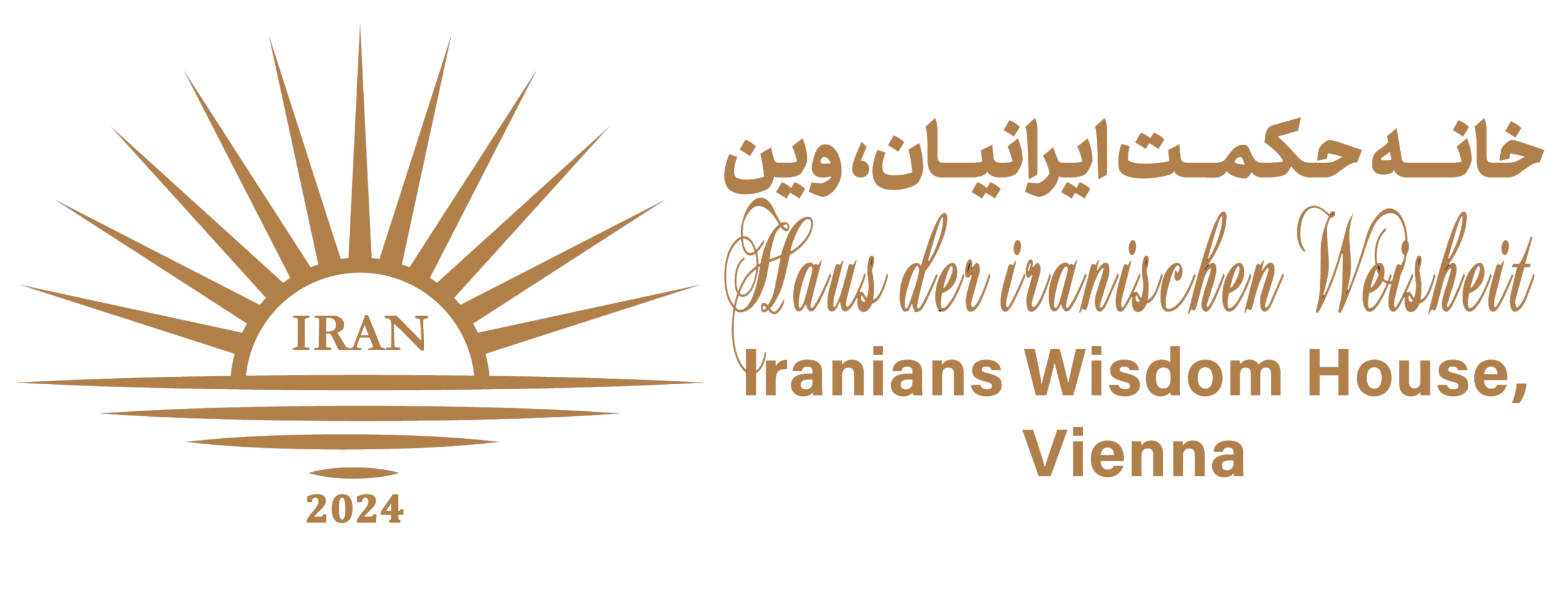Yalda Night is an ancient Iranian tradition dating back to pre-Islamic Persia and is celebrated annually on the longest night of the year, marking the beginning of winter.
On this night, families and friends traditionally gather to spend a warm and memorable evening together.
This year, the Yalda Night celebration took place on 20 December at the Iranians Wisdom House in Vienna, with the participation of a number of Iranians living in Austria.
The program included the recitation of selected verses from Hafez of Shiraz, as well as a discussion on Iranian customs and cultural traditions associated with Yalda Night.
At the conclusion of the event, guests were treated to several traditional Iranian dishes prepared by three Iranian families residing in Vienna.
Concurrently with the Yalda celebration, prizes of the “Beautiful Iran” painting competition were awarded to the selected outstanding artworks.
Event’s Code: 025
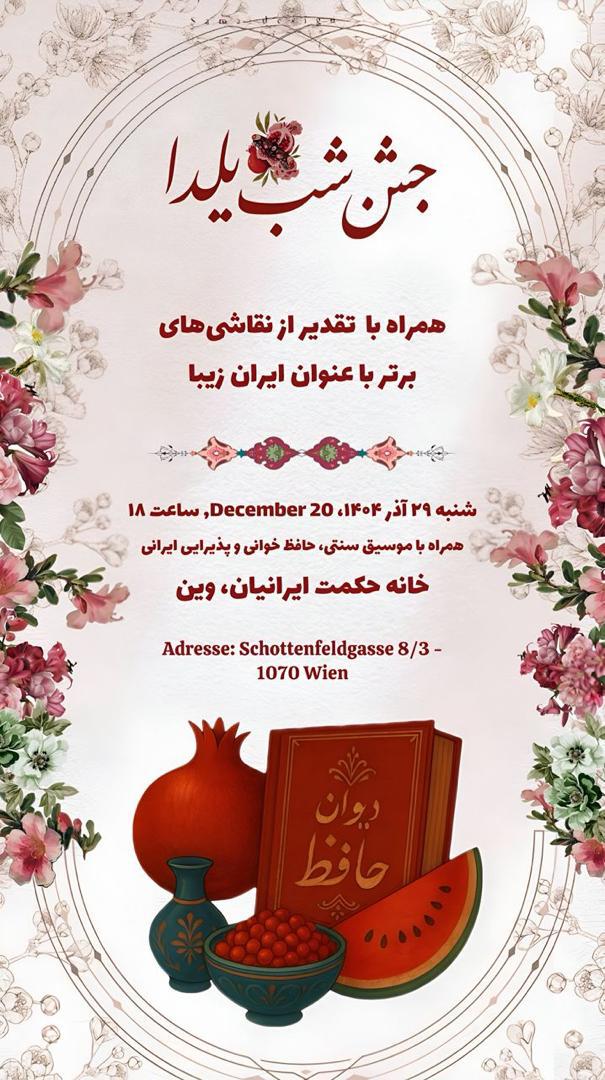
The book “Collected Lectures of the Conference on the Future of the World and New Philosophical Problems,” supervised by Dr. Muhammad Asghari (Professor at the University of Tabriz), was published in November 2025 by Unidialogue Publications (with the support of the Iranian Wisdom House in Vienna) in Austria. This book, printed with ISBN 978-3-9505638-9-4, contains the lectures presented at the international online conference “The Future of the World and Emerging Philosophical Issues,” held on November 20, 2025 (Aban 30, 1404) on the occasion of World Philosophy Day.
This conference, jointly organized by the University of Tabriz in Iran and the Iranian Wisdom House in Vienna, with the participation of prominent philosophers from around the world, examined contemporary philosophical challenges such as environmental crisis, digital technology and artificial intelligence, human dignity, justice, and the interaction of philosophy with the new world. The book includes an introduction, foreword, and the full text of key lectures focusing on four main axes: climate ethics and environmental crisis, digital technology and artificial intelligence and human role, human dignity, justice and cosmopolitanism, and rethinking the interaction of philosophy with the modern world.
The content of the book is derived from the lectures of prominent philosophers as follows:
This book, published in 64 pages, is the result of the efforts of Muhammad Asghari as the scientific secretary of the conference and Reza Gholami as the executive secretary. The lectures were first broadcast online via Google Meet, and their videos were made available on the YouTube channel of the Iranian Wisdom House in Vienna. The conference articles will also be published next year in the Philosophical Investigations Quarterly of the University of Tabriz.
The publication of this book, which is the first attempt to philosophically examine the future of the world from the perspective of 21st-century philosophers, has been welcomed by the global philosophical community and strengthens Iran’s position as an active center in international philosophical dialogue. Interested individuals can refer to the website of the Iranian Wisdom House in Vienna at https://wisdomhouse.at/ for more information on how to obtain this book.
Event’s Code: 024
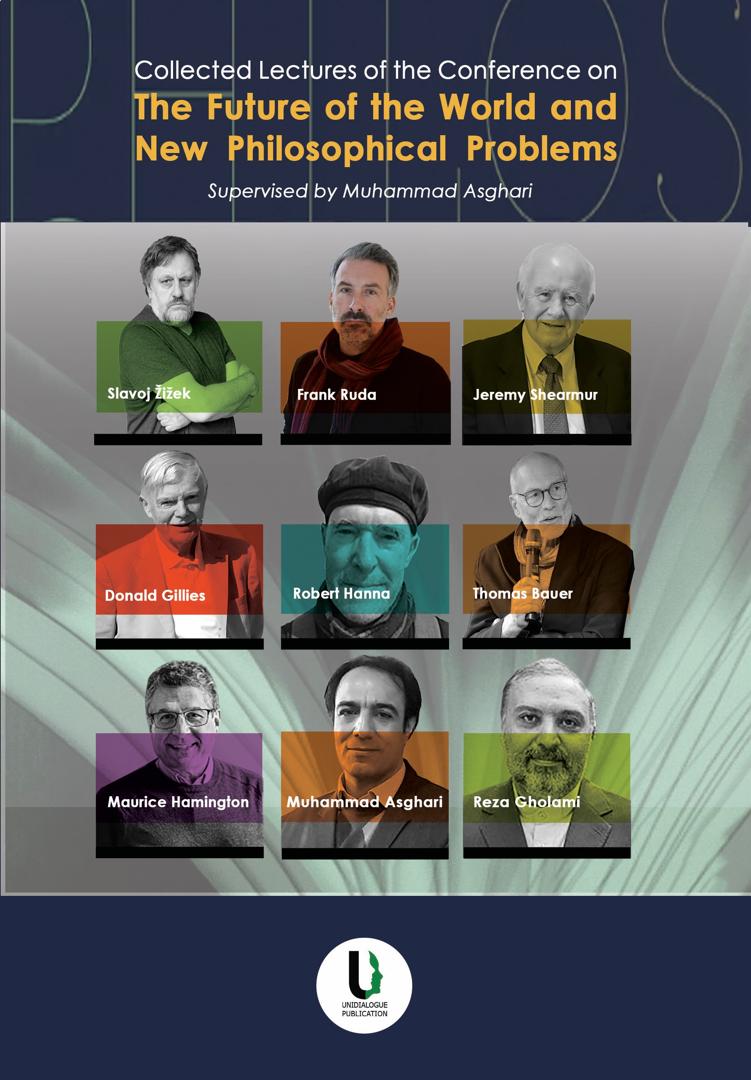
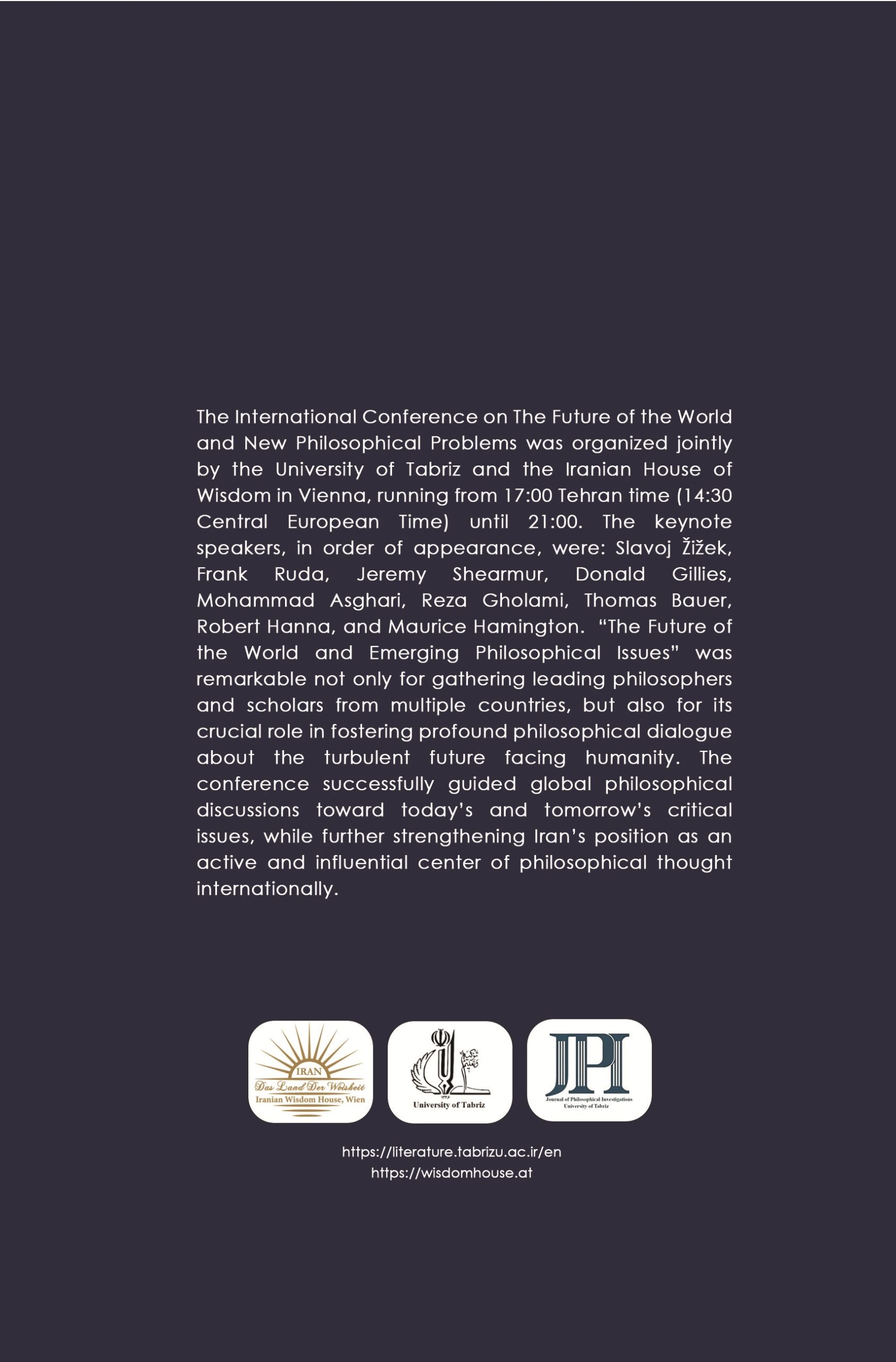
published in February 2025
The Narrative of Colors: Faces of Iranian Painting from Tradition to Modernity is a concise yet insightful German-language booklet published in February 2025 in Vienna by the Iranian Wisdom House in Vienna in collaboration with the Hafez–Hammer-Purgstall Association. Presented in octavo format and spanning 32 pages, the booklet offers an aesthetic and well-documented journey through the history of Iranian painting—from the brilliance of Timurid and Safavid miniature art to modern and contemporary movements.
Written in a clear and analytical style, the booklet introduces the masterpieces and artistic innovations of renowned figures such as Kamal al-Din Behzad, Reza Abbasi, Mir Emad, Kamal-ol-Molk, Sohrab Sepehri, Mahmoud Farshchian, Hossein Zenderoudi, and other leading masters who shaped the evolution of Iranian art. A dedicated section highlights the achievements of Iranian women artists—including Monir Farmanfarmaian, Behjat Sadr, Farah Ossouli, Golnaz Fathi, and others—emphasizing their central role in the development of contemporary Iranian art.
The Narrative of Colors offers European readers a fair, balanced, and accessible portrayal of the continuity between tradition and modernity in Iranian painting. It reveals why Iranian visual art—with its fusion of spirituality, imagination, and innovation—remains one of the world’s most distinctive and influential artistic traditions. This booklet serves as a reliable, compact resource for artists, art students, Iranologists, cultural institutions, and general readers interested in the artistic heritage of Iran.
Event’s Code: 023
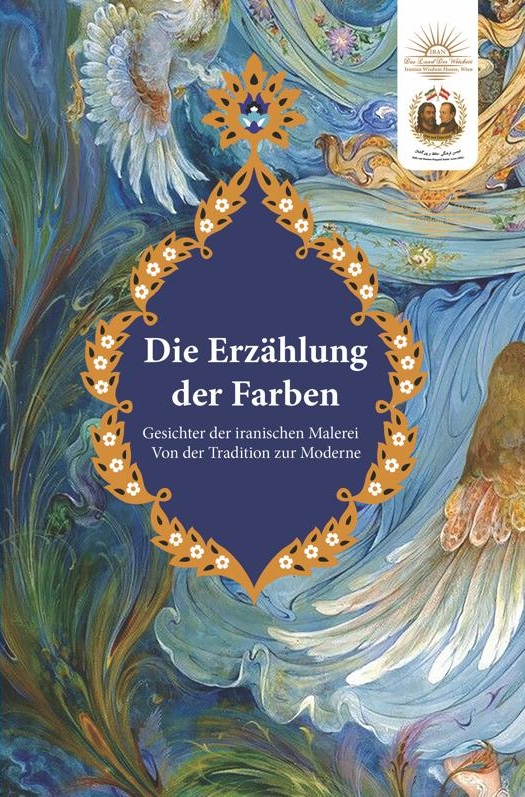
Date: November 20, 2025
Tehran – The international conference titled “The Future of the World and Emerging Philosophical Issues” was held entirely online on Thursday, 30 Aban 1404 (20 November 2025). The event featured keynote addresses by some of the most prominent contemporary philosophers and thinkers from around the world. Organised jointly by the University of Tabriz and the Cultural Counsellor of the Islamic Republic of Iran in Austria (the Iranian House of Wisdom in Vienna), the conference ran from 17:00 Tehran time (14:30 Central European Time) until 21:00.
The keynote speakers, in order of appearance, were:
Slavoj Žižek, Frank Ruda, Jeremy Shearmur, Donald Gillies, Mohammad Asghari, Reza Gholami, Thomas Bauer, Robert Hanna, and Maurice Hamington.
Professor Mohammad Asghari (scientific secretary of the conference and editor-in-chief of the Philosophical Research quarterly at the University of Tabriz) opened the event with an introductory address.
The conference was structured around four main themes:
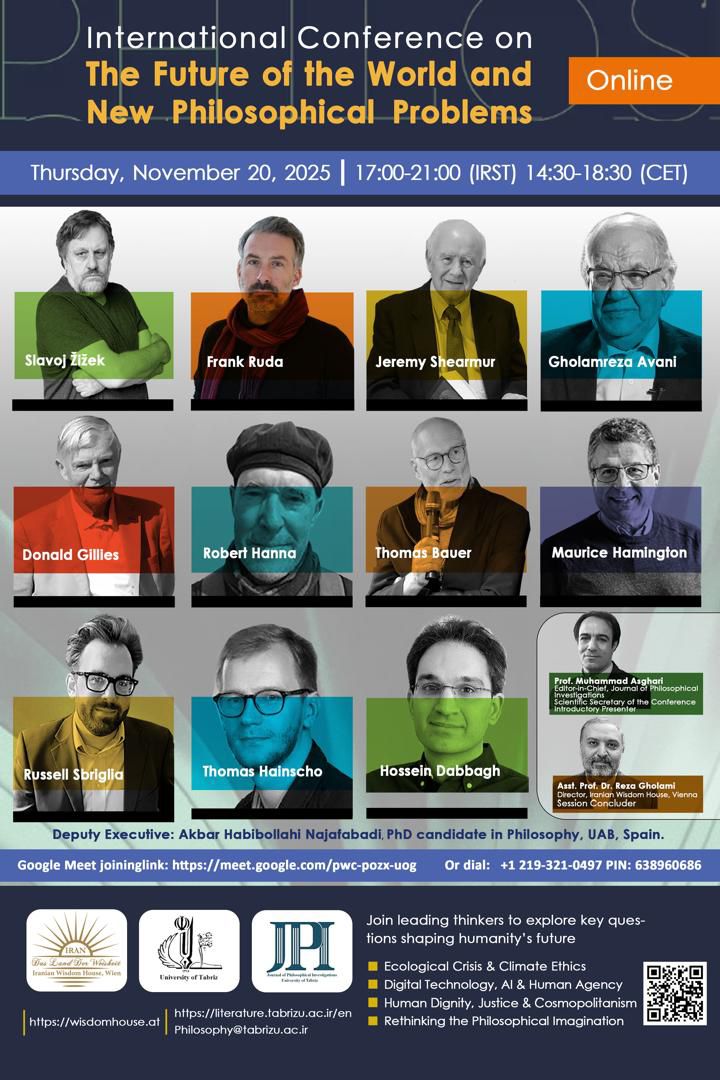
Date: October 30, 2025
The Third Symposium on Iranian Studies in Austria, titled “An Evening with Professor Dr. Rüdiger Lohlker, the Prominent Austrian Islamic and Iranian Studies Scholar,” took place on the
evening of Thursday, 8 Aban 1404 (corresponding to 30 October 2025), organized by the Iranian Wisdom House in Vienna.
This program was held in the presence of a group of university professors, researchers, Iranian studies scholars, and enthusiasts of Iranian culture and civilization on the famous Mariahilfer
Street in Vienna.
At the beginning of the program, the symposium’s host, Dr. Viktor Szabo, a PhD graduate in Oriental Studies from the University of Vienna, provided a brief overview of the academic life and research activities of Professor Dr. Rüdiger Lohlker. Referring to his numerous works in the fields of Islamic studies, Iranian studies, and philosophy of religion, he emphasized Lohlker’s
effective role in expanding cultural and inter-civilizational studies in Austria and throughout Europe.
Event’s Code: 022
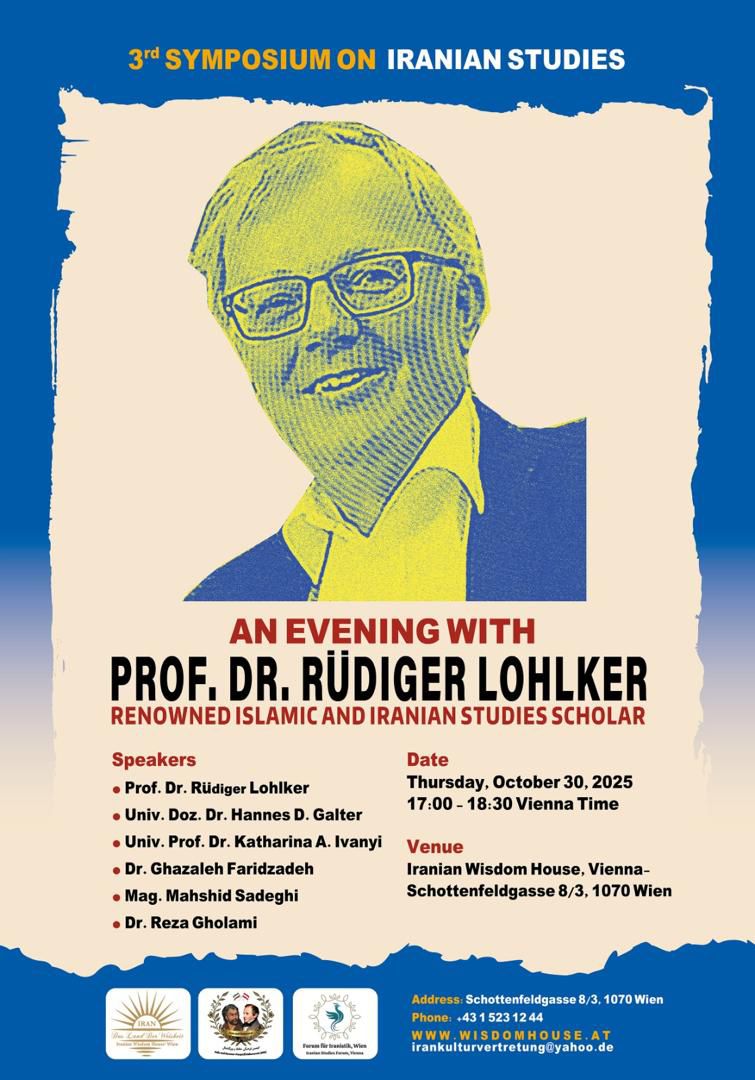
Date: October 17, 2025
On October 17, 2025, a heartfelt ceremony organized by the House of Iranian Wisdom in Vienna honored Master Mahmoud Farshchian, the renowned Iranian miniaturist who passed away on August 9, 2025, at 95 in the U.S. due to pneumonia. Held at Avicenna Hall, the event, Poet of Color & Love, featured speeches, a display of Farshchian’s works, and a documentary on his life.
Farshchian, buried in Isfahan, pioneered “surnaturalism,” blending Persian painting with global elements. His childhood and a near-death experience at age five shaped his artistic vision. Dr. Bahman Namvar Motlagh praised his humility, innovation, and global influence, noting his exhibitions in China, Japan, Europe, and America, and the establishment of Farshchian University. Professor Golmar Kampinger Khatibi highlighted his ability to merge Iranian traditions with modern art, influenced by his 1950s studies in Vienna. Professor Mohammad Mastandehi credited Farshchian’s works with transforming Persian miniature painting, inspired by poets like Hafez. Professor Fargol Leila Khatibi, a former student, lauded his teaching and innovation, while Dr. Mohammad Hashemi analyzed the spiritual depth in his works. Dr. Reza Gholami emphasized his mysticism and patriotism.
An exhibition of masterpieces like Noon of Ashura and a documentary connected generations. Organized with Iran’s Cultural Attaché in Austria, the event concluded with traditional Iranian music.
Event’s Code: 021
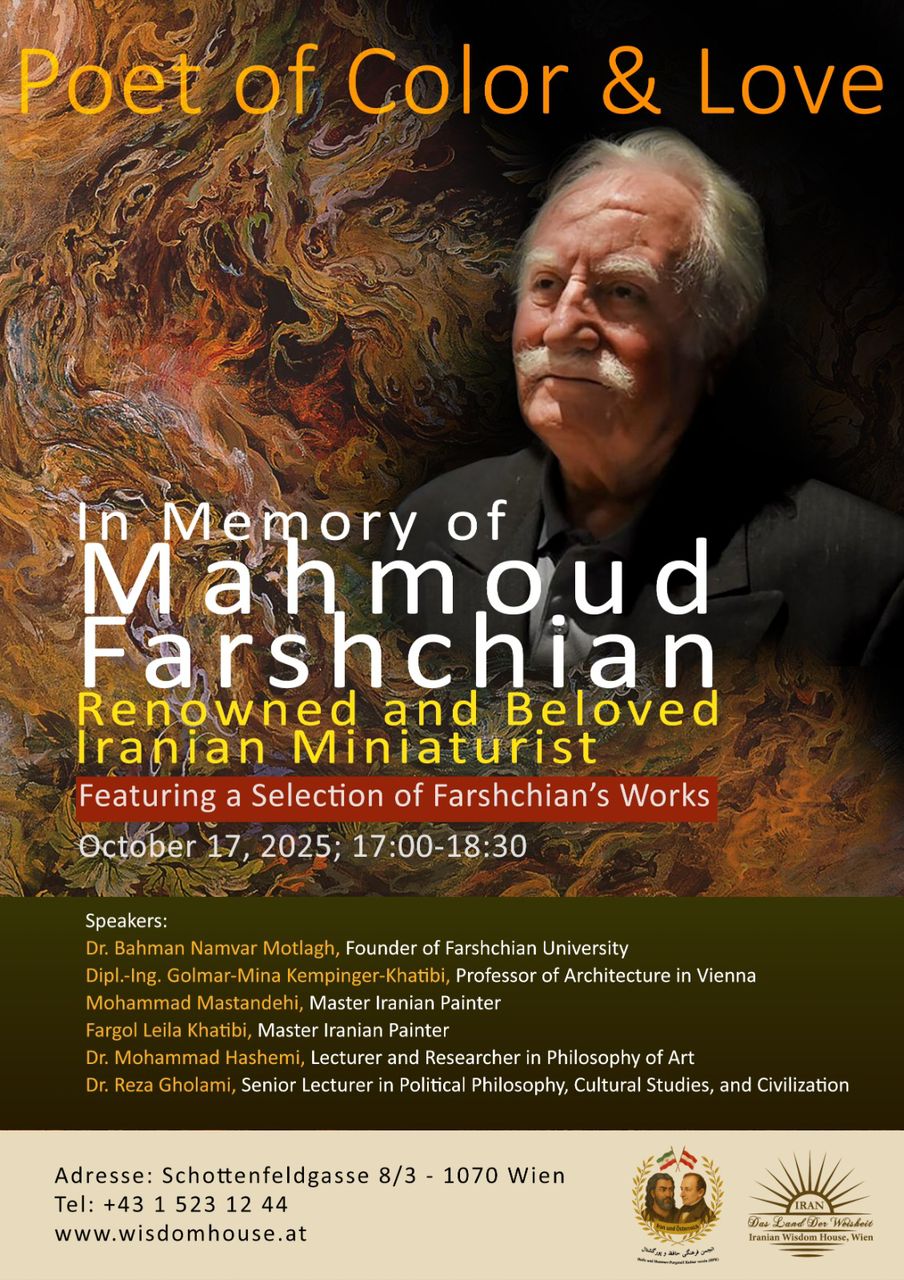

Date: September 11, 2025, from 4:00 to 6:00 PM
A cinematic reading meeting of Majid Majidi’s film Muhammad: The Messenger of God was held with a message of global empathy and solidarity.
Organized by the Iranian Wisdom House in Vienna and the Institute for the Intellectual Development of Children and Young Adults, the meeting took place at the Iranian Wisdom House in Vienna. This cultural-artistic event was held on Thursday, September 11, 2025, from 4:00 to 6:00 PM Central European Summer Time (CEST). In addition to the in-person audience, it was live-streamed, attracting viewers from around the world. The meeting took place in Vienna, a city known as the cultural and artistic capital of Europe, hosting some of the world’s most significant cinematic events each year.
The meeting was organized to mark 2025 (1447 AH) as the “Year Commemorating the 1500th Anniversary of the Birth of the Holy Prophet (PBUH),” as designated by the Organisation of Islamic Cooperation (OIC). Its goal was to promote the teachings of mercy, justice, and human solidarity based on the life of the Prophet Muhammad (PBUH).
During the meeting, various clips from the film Muhammad were screened. The highlight was an exclusive video message from Majid Majidi, the renowned writer and director of the film. In his message, Majidi discussed the process of making the film and compared it to works about other prophets, such as Jesus, Moses, and even Buddha. He described the scarcity of films about the Prophet Muhammad (PBUH) in global Islamic cinema—limited to just two films—as an injustice to the Prophet and called for addressing this gap.
Majidi also criticized the portrayal of the Prophet as merely a warrior, calling it another injustice. He emphasized that the Quran describes the Prophet’s most important quality as “Mercy to the Worlds.” He noted that during the Prophet’s lifetime, he never initiated any wars, and all battles were defensive. Majidi referred to the Prophet’s approach to war as a “Charter of Ethical International Conduct,” which could be applied at the United Nations. This approach not only frames defense within ethical boundaries but also creates opportunities for ethical actions, such as humane treatment of prisoners, which Majidi called truly unique.
Addressing recent tragedies in Gaza, particularly the killing of children and starvation of people, Majidi described these events as a sign of the world’s loss of morality and existential understanding, worsened by the silence of the global community.
In another part of the meeting, Mohammadreza Varzi, a writer and filmmaker, praised the film for effectively depicting the childhood of the Prophet Muhammad (PBUH). He analyzed the film’s brilliant technical and thematic aspects and highlighted some of its standout scenes.
Malihe Norouzi, an art theory researcher in Vienna, emphasized the film’s subtle artistic and thematic elements in portraying the deep human dimensions of the Prophet Muhammad (PBUH).
Dr. Reza Gholami, a professor of political philosophy, cultural studies, and civilization studies, and head of the Iranian Wisdom House in Vienna, also praised Majidi’s film for showcasing the radiant character of the Prophet Muhammad (PBUH). Presenting the “Manifesto of Moderate Islam,” he outlined ten key characteristics of this interpretation of Islam, describing moderation as a core feature of Islam according to the Quran.
The meeting concluded with warm applause from the audience and positive online feedback, marking a significant step toward enriching cultural dialogue between Iran and Austria.
Date: August 14, 2025
The academic seminar titled “Science and Religion in the Horizon of Monotheistic Worldview” was held on August 14, 2025 (23 Mordad 1404) at the Iranian Wisdom House, Vienna. The event, which included a book presentation and scholarly discussions, commenced with a keynote speech by Professor Dr. Mehdi Golshani, Professor Emeritus at Sharif University of Technology, a member of the Academy of Sciences of Iran, and a pioneer in the field of science and religion in Iran.
Dr. Golshani introduced the perspectives outlined in his book, which had been translated into German through the efforts of the Cultural representative of Iran in Austria and published by Uni-Dialogue Publishing in Vienna. The program, moderated by Dr. Viktor Sabo, featured presentations by distinguished speakers, including Professor Manfred Hauser, a lecturer and researcher in philosophy; Professor Mohammad Waldman, a scholar and translator of Islamic studies; and Dr. Reza Gholami, a senior professor of political philosophy, cultural, and civilizational studies, and the Cultural representative of Iran in Austria. Each speaker presented their views and analyses on the topic of science and religion within the framework of a monotheistic worldview, engaging in fruitful discussions with the audience. Several attendees also shared their questions with the speakers.
The event was warmly received by those interested in interdisciplinary discussions in Vienna…
Event’s Code: 019
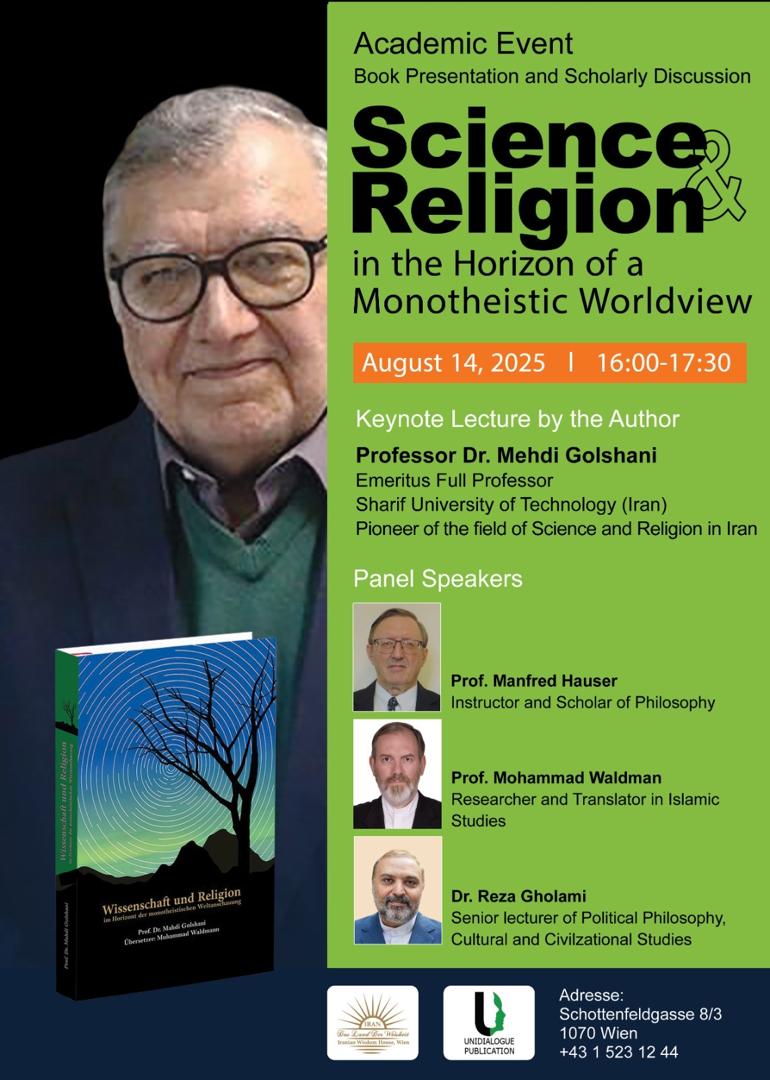
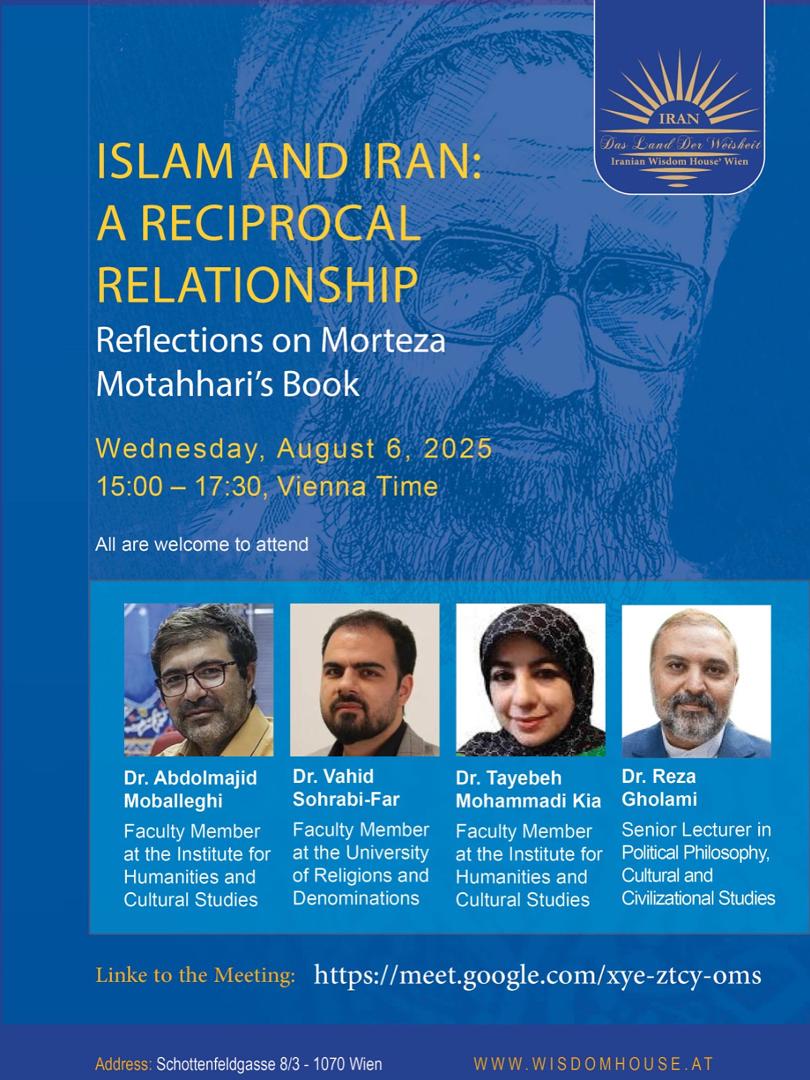
Date: August 6, 2025
Vienna, August 6, 2025: A scholarly event titled “Islam and Iran: A Mutual Relationship” was held by the Iranian Wisdom House in Vienna, focusing on the influential book Mutual Services of Islam and Iran by the late Professor Morteza Motahari. The event, attended by four prominent professors and researchers in humanities and Islamic studies, provided an opportunity to reflect on the historical and cultural connection between Iran and Islam.
Professor Morteza Motahari, a leading and dedicated contemporary religious thinker, explored the core aspects of Islamic and Iranian identity with deep, thoughtful, and intellectual insight. His book Mutual Services of Islam and Iran is one of his lasting works, where he uses historical, philosophical, and social evidence to explain the constructive, two-way interaction between Islam and Iran. Motahari sees Islam as a pure and civilization-building “content” that found a place in the “container” of Iran, while Iranians, with their historical wisdom, helped Islam grow and spread.
The event featured speeches by Dr. Abdulmajid Moghbeli (Research Institute of Humanities and Cultural Studies), Dr. Tayyebeh Mohammadi Kia (Research Institute of Humanities and Cultural Studies), Dr. Vahid Sohrabifar (University of Religions and Denominations), and Dr. Reza Gholami, a university professor and head of the Iranian Wisdom House in Vienna.
Dr. Moghbeli focused on Motahari’s concepts of “container and content” and “soul and body” in the relationship between Iran and Islam, offering a philosophical explanation of this cultural bond. He emphasized that this relationship should be seen as a dynamic system where both Iran and Islam shape and transform each other in a productive interaction.
Dr. Mohammadi Kia introduced the structure, features, and hidden aspects of Mutual Services of Islam and Iran, noting that the book is valuable not only for its content but also for its methodology, making it worth revisiting today.
Dr. Sohrabifar compared the views of Professor Motahari and Dr. Abdulhossein Zarrinkoob on the relationship between Iran and Islam, analyzing their differences in historical and philosophical perspectives.
Dr. Gholami, who also served as the event’s academic secretary, began by highlighting Professor Motahari’s significance, calling Mutual Services of Islam and Iran a work “ahead of its time” and a brilliant result of committed religious intellectualism. He stressed that the book is not just a historical report but carries a forward-looking cultural message. Gholami rejected the idea of reducing Iran to merely a vessel for Islam, explaining that Iran, especially after embracing Islam, absorbed and reflected part of the Islamic-Iranian identity’s spirit.
Gholami also reviewed criticisms of Motahari’s book and the responses from his students, emphasizing that the relationship between Iran and Islam can only continue if both move forward together, neither lagging behind. He highlighted the key role of rational interpretation (ijtihad) and the need to strengthen reasoning in addressing modern Iran’s needs.
After each speech, a Q&A session was held with active audience participation. The event included researchers of Iranian studies and several Iranian students living in Austria. Virtual attendance was also available via Google Meet.
It’s worth noting that Austria is a key center for Iranian studies in Europe, making such events particularly significant. In recent years, the Cultural Office of the Islamic Republic of Iran in Austria has organized a series of academic events on Iranian studies, cultural studies, and the history of Iranian thought, which have gained attention in European academic and cultural circles.
Event’s Code: 018
Date: July 11, 2025
It is my pleasure for being here. I would like to appreciate the conference team and panel chairman for his excellent management.
I present my article in 5 steps and 15 key points. The title of my article is: Islamic Moderation: Promoting Tolerance and Coexistence in a Multicultural World
In this article, I use both words “tolerance” and “moderation.” I believe moderation in social life can be another aspect of tolerance.
🟪 Introduction: A Civilizational Choice
In today’s interconnected world, physical borders are fading, yet cultural and emotional divides persist.
We face a pivotal question: Can we transform our differences into opportunities for growth, or will they fuel hatred, fear, and conflict?
The answer lies in embracing a balanced interpretation of religion—particularly Islam—that emphasizes moderation, reason, and respect for diversity.
actually, there are various interpretations of Islam based on the Quran and Sunnah. Among these, one interpretation emphasizes moderate Islam.
This interpretation moves beyond historical prejudices and biases, and by relying on the foundations of Islam in the Quran and Sunnah, opens the way for Islam to extend according to the needs of the time.
Far from being a source of division, this approach positions Islam as a path to unity and coexistence….
Step 1: Understanding the Challenge – Why Tolerance Matters Today
Step 2: Religion – A Source of Unity or Division?
Step 3: Rethinking Tolerance – From Dialogue to Divine Guidance
Step 4: Reason and Moderation – The Heart of Islamic Ethics
Step 5: Practical Steps to Promote Tolerance
🟪 Conclusion: Moderation as a Universal Language
Islamic moderation—rooted in reason, justice, and compassion—is more than a guiding principle for Muslims; it is a message of hope for the entire world.
In an age marked by fear, division, and conflict, what humanity needs is not louder voices, but wiser ones.
Moderate Islam speaks a language of peace, turning difference into dialogue, conflict into cooperation, and fear into mutual understanding.
By embracing this balanced and inclusive approach, we open the door to a future where diversity is not a burden to manage but a strength to celebrate. Thank you for your attention.
Event’s Code: 017
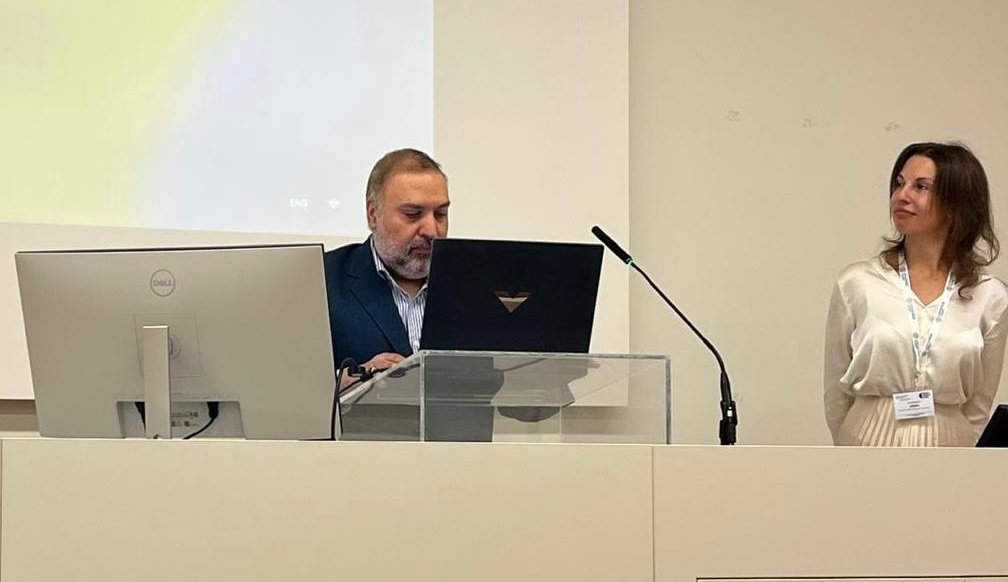
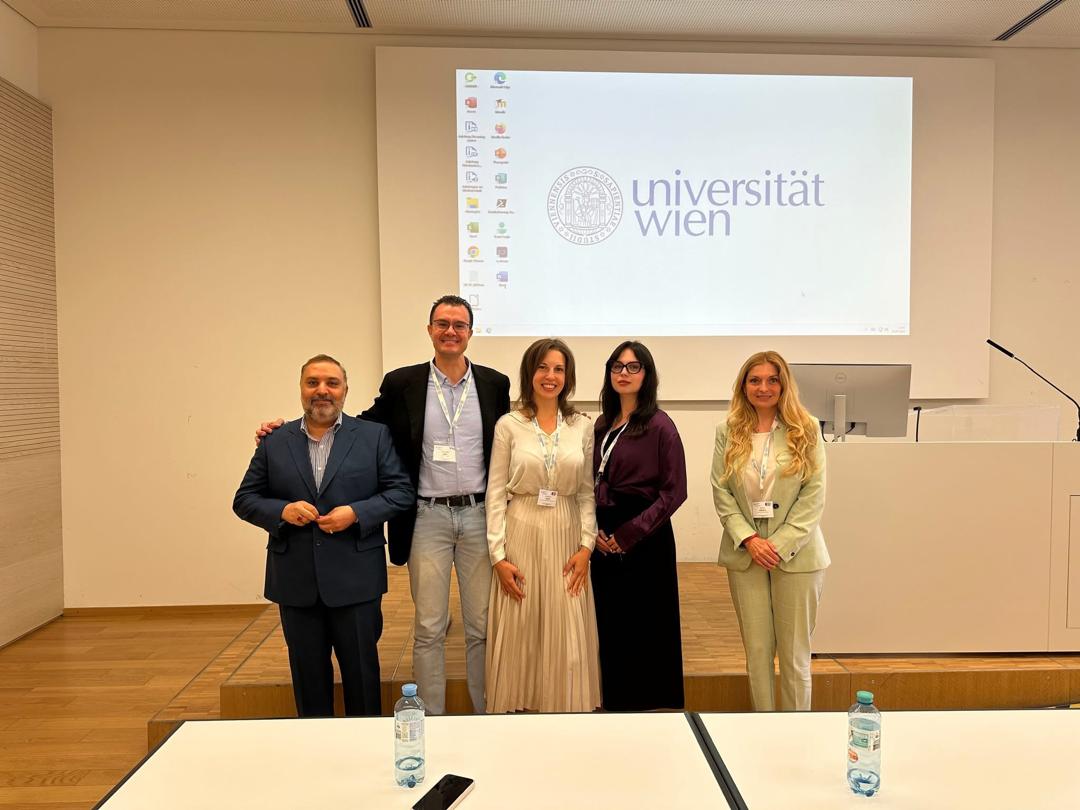
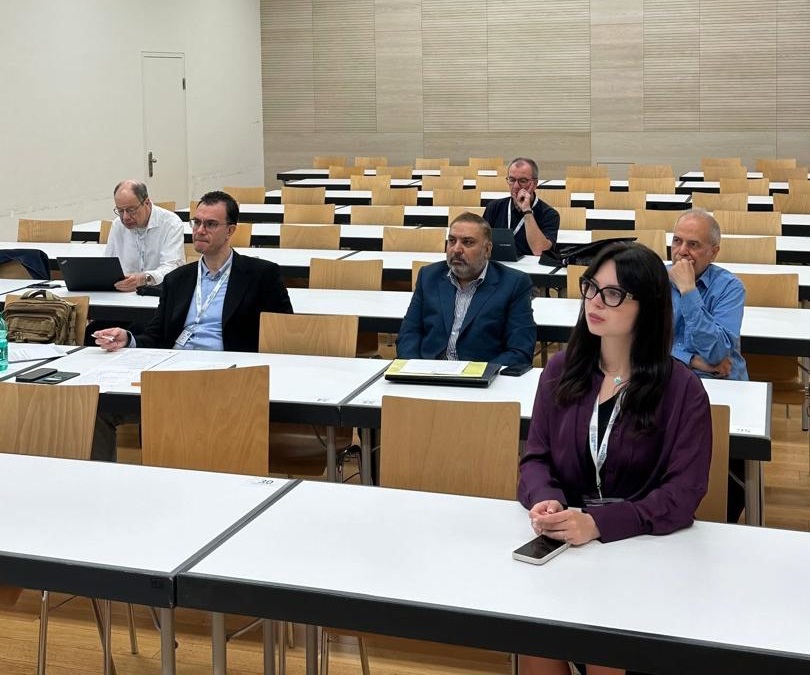
Date: May 28, 2025
We stand in an era where the rapid pace of technological transformations has profoundly reshaping the human experience-not only through advancements in technology but also in the foundations of thought, social relationships, and humanity’s understanding of itself and the world. In such a time, questions about the nature of humanity, the meaning of life, the boundaries of free will, and the limits of ethics are not only new but urgently pressing. Religions, which for centuries have provided meaning to existence and safeguarded human dignity, now face a heightened responsibility-not merely to recite tradition but to reinterpret and reimagine it to address the challenges of the modern world.
First, I extend my heartfelt gratitude to all of you, especially the esteemed speakers, and offer special thanks to Professor Petrus Bsteh for his kind message to this meeting. This gathering addresses a profoundly important and innovative topic, with the potential to open a new chapter in interfaith dialogue.
The purpose of this speech is to emphasize the role of interfaith dialogue in confronting emerging issues driven by technological transformations—not a dialogue confined to outdated clichés but a collaborative effort to protect ethics, the root of human life and the common ground for all religions. When the truth of ethics is at stake, differences in beliefs should not justify silence. Today, ethics is not merely an individual virtue but a collective responsibility, and interfaith dialogue offers a historic opportunity to fulfill this duty…
Event’s Code: 016
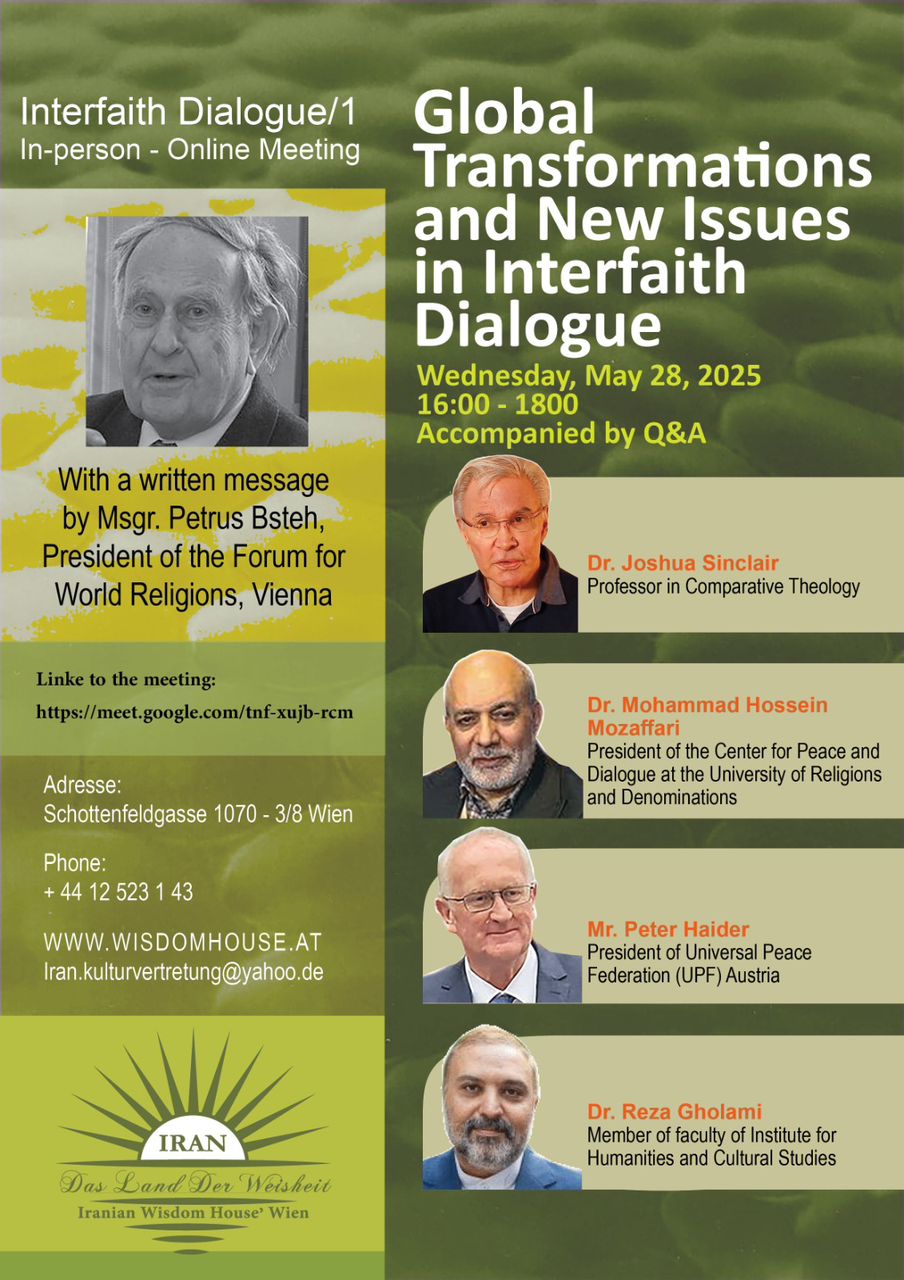
Date: Saturday, May 17, 2025
On Saturday, May 17, 2025, coinciding with International Family Day, a conference titled “Family-Centered Policy for Sustainable Development” was held in Vienna, the capital of Austria. The event, which took place from 16:00 to 20:00 local time, was organized by the Universal Peace Federation (UPF) Austria and the Austrian Women’s Federation for World Peace, in collaboration with the Iranian Wisdom House in Vienna.
The opening ceremony was hosted by Marinella Stefank, who served as the event’s moderator, and featured a performance by the Vienna Family Federation Choir. The choir performed two pieces, “You Raised Me Up” and “Von guten Mächten” (“By Gracious Powers”), creating a warm and uplifting atmosphere. Following the performance, Peter Haider, President of UPF Austria, welcomed the guests and officially opened the conference.
Dr. Reza Gholami began his speech by saying, “I am deeply honored to be among you today as we celebrate International Family Day.” He emphasized the family’s role as the cornerstone of society and its guarantor of survival, expressing regret that the family unit has rapidly weakened in recent decades. He stated, “In my view, saving and strengthening the family requires making it a central pillar of sustainable development. Events like this provide a valuable opportunity to explore ways to support the family, and I would like to sincerely thank Mr. Haider and Ms. Koch for organizing this seminar.”…
Event’s Code: 015
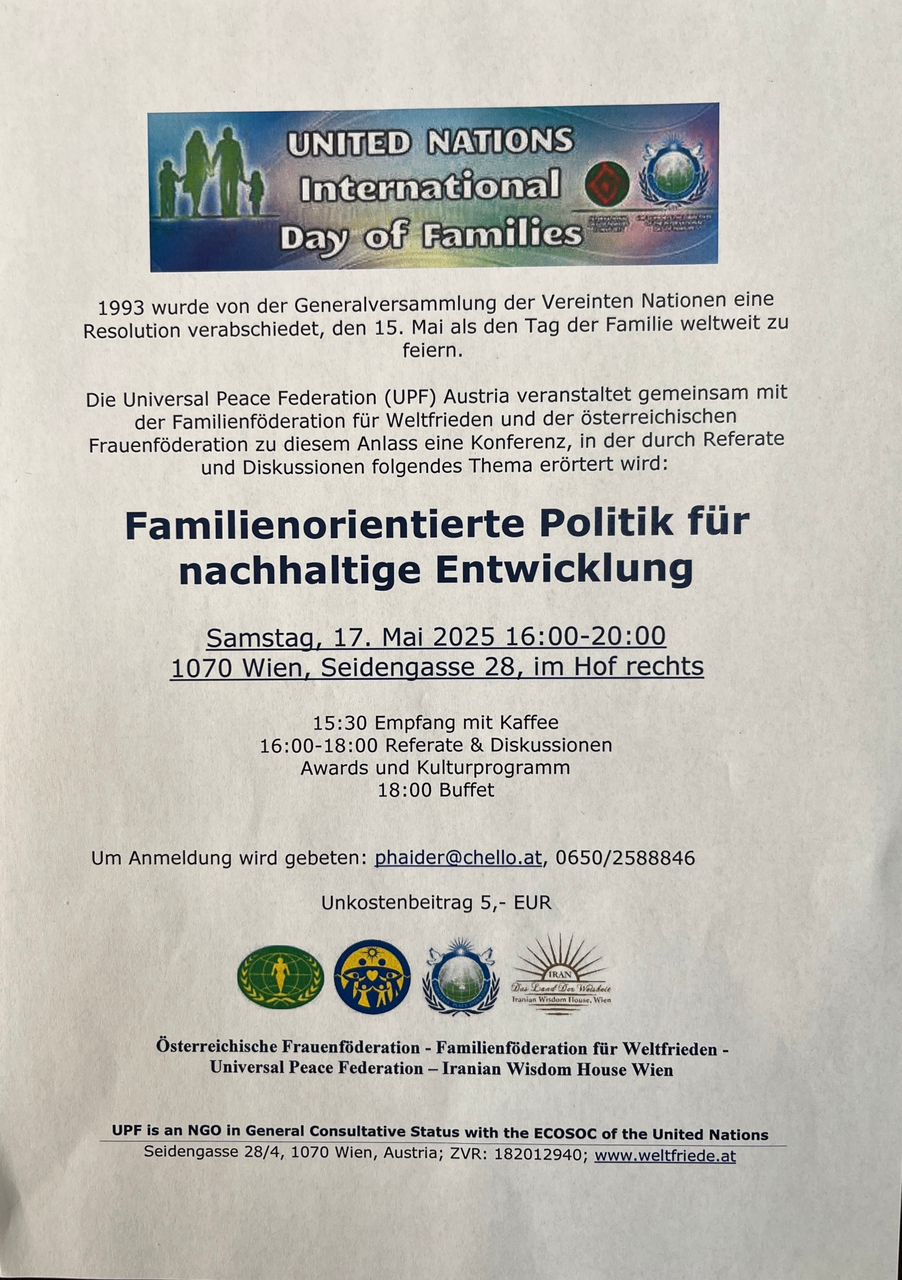
Date: April 7, 2025
A specialized workshop on Islamic philosophy, attended by an esteemed assembly of professors and researchers, took place at the University of Vienna. Held from 2:00 PM to 5:00 PM in the university’s main building, the event was organized by the Institute of Philosophy, showcasing the institution’s commitment to advancing philosophical discourse. The workshop featured a series of insightful presentations, exploring the intersections of Islamic thought with ancient Greek philosophy and its contemporary relevance.
The proceedings commenced with an opening address by Professor Dr. Georg Karamanolis, Deputy Director of the Institute of Philosophy and Head of the Department of Ancient Philosophy. In his remarks, Professor Karamanolis underscored the significance of studying Islamic philosophy and its pivotal role in the history of human thought, introducing the speakers and their respective topics. Following this, Professor Dr. Elvira Wakelnig, an expert in Oriental Studies at the University of Vienna, delivered a lecture on “Arabic Translations of Galen and Aristotle,” offering a profound analysis of their impact on the development of Islamic philosophy….
Event’s Code: 014
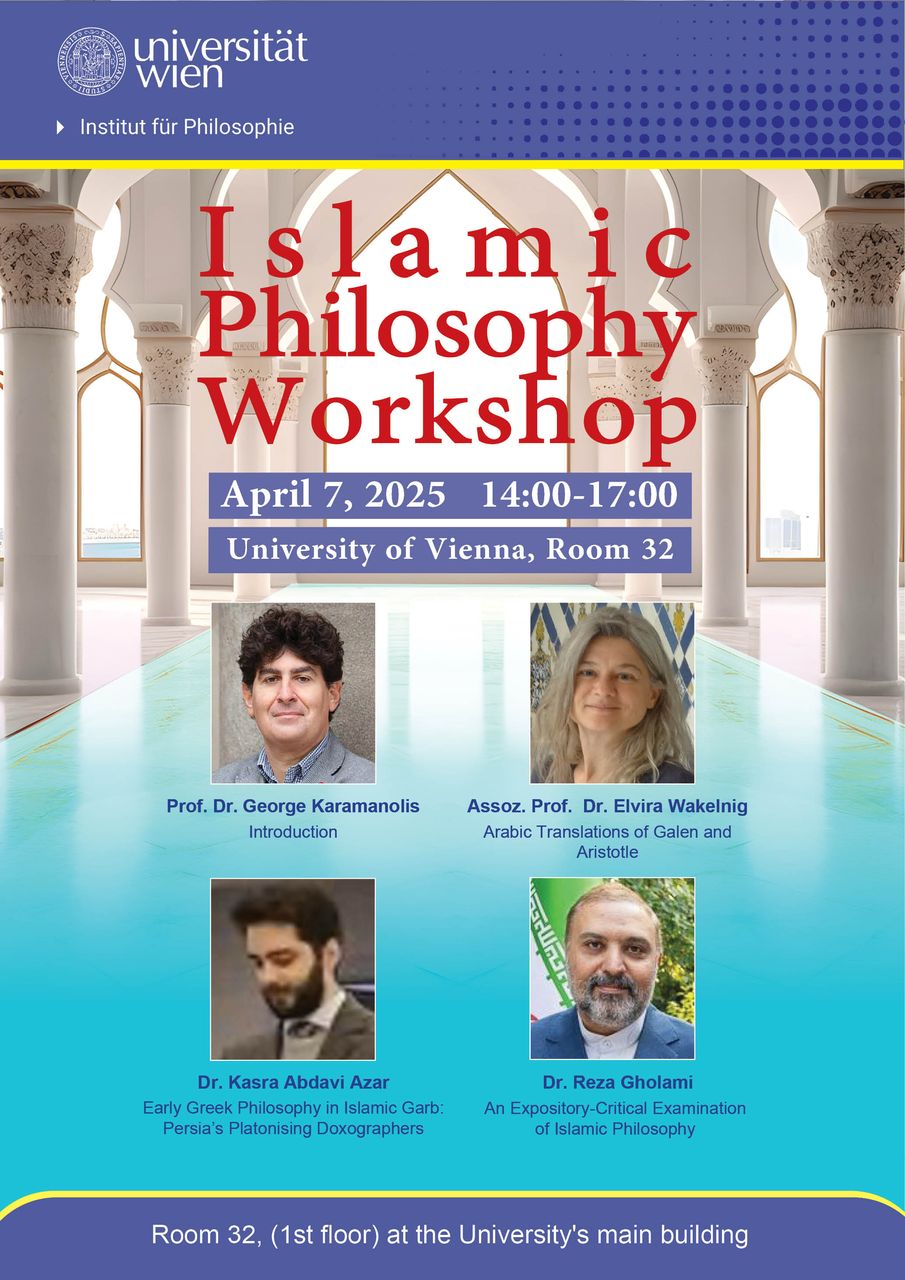
Date: April 3, 2025
The Second Symposium on Iranian Studies, coupled with a tribute to the late Austrian Iranologist Professor Bert Fragner, was held in Vienna, Austria, under the auspices of the Cultural Office of the Islamic Republic of Iran in Austria. The event, hosted at the Iranian Wisdom House, drew a distinguished gathering of scholars, researchers, and enthusiasts of Iranian culture and civilization. Running from 4:00 PM to 7:00 PM local time, the symposium celebrated the intellectual legacy of Professor Fragner, the founder of the Institute of Iranian Studies at the Austrian Academy of Sciences, while fostering a dynamic exchange of ideas on Iran’s rich history and heritage.
The symposium’s central theme revolved around the scholarly contributions and philosophical insights of Professor Fragner, a globally renowned figure whose extensive research illuminated the field of Iranian studies. His works remain a cornerstone of academic inquiry, and his lifelong dedication significantly advanced the discipline in Austria. The event featured a lineup of prominent speakers, including Fragner’s widow, who offered a heartfelt reflection on his character and academic passions, alongside Professors Rüdiger Lohlker, Nosratollah Rastegar, Mitra Shahmoradi, and Dr. Reza Gholami. Their diverse perspectives enriched the proceedings, transforming the symposium into a vibrant forum for knowledge and dialogue….
Event’s Code: 013
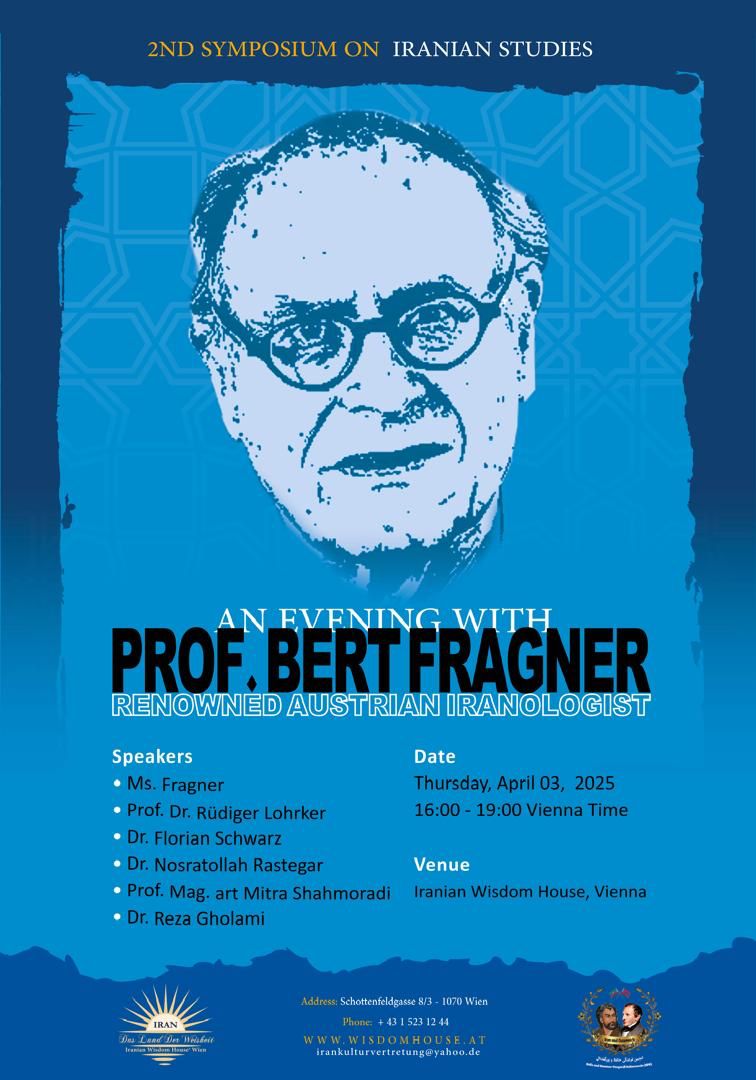
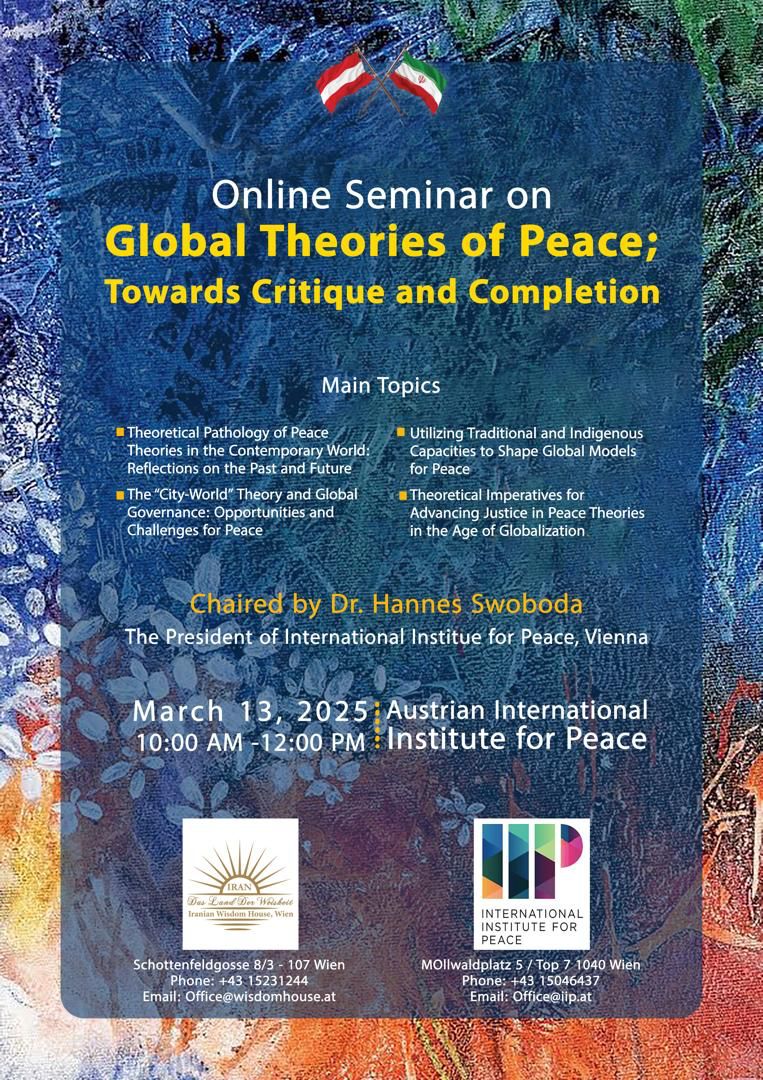
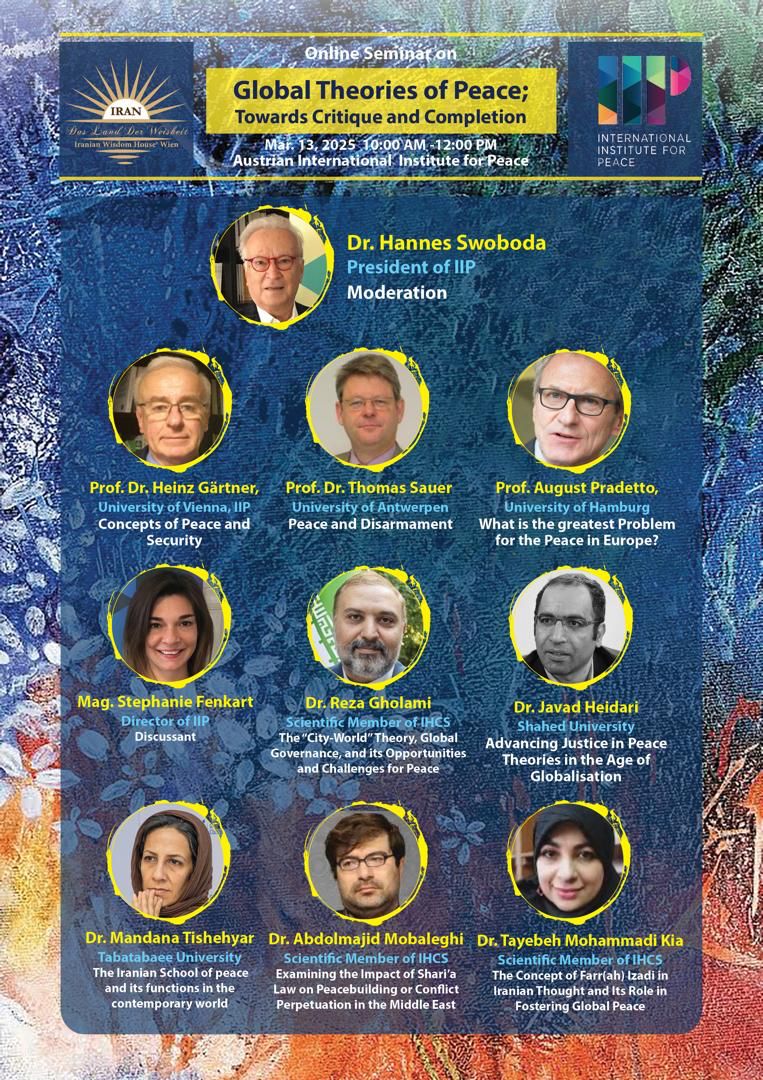
As part of the ongoing academic and scientific cooperation between Iran and Austria on crucial global issues, an online seminar titled “Global Theories of Peace: Towards Critique and Completion” was successfully held on March 13, 2025 (Esfand 23, 1403). The event was organized by the Austrian International Institute for Peace (IIP) and the Iranian Wisdom House in Vienna.
It took place online from 10:00 AM to 12:00 PM Vienna time, bringing together Iranian, Austrian, and other European scholars to discuss the revision and completion of peace theories with a future-oriented perspective.
The seminar was moderated by Mag. Stephanie Fenkart, Director of the IIP, and covered key topics such as the theoretical challenges of peace, reflections on contemporary peace theories, the role of traditional and indigenous capacities in shaping global peace models, and the advancement of justice in peace theories in the era of globalization. Discussions also included the “World-City” theory, global governance, and their challenges and opportunities for peace.
Among the prominent speakers, Professor Heinz Gärtner from the University of Vienna and Deputy Director of Research at the IIP delivered a lecture on “Concepts of Peace and Security.” Professor Thomas Sauer from the University of Antwerp discussed “Peace and Disarmament,” while Professor August Pradetto from the University of Hamburg raised the question of “The Greatest Challenge to Peace in Europe.” Meanwhile, Dr. Reza Gholami, Professor of political philosophy, presented on “The World-City Theory, Global Governance, and Its Opportunities and Challenges for Peace.”
During the seminar, Dr. Reza Gholami, described open and constructive academic dialogues between Iran and Europe as a valuable experience for both sides. He expressed hope that such academic discussions would continue in the future, emphasizing that such interactions could enhance mutual understanding and academic collaboration between Iran and Europe.
Other speakers included Dr. Mandana Tishehyar from Allameh Tabataba’i University, who spoke on “The Iranian School of Peace and Its Role in the Contemporary World.” Additionally, Dr. Abdolmajid Mobaleghi presented on “The Impact of Sharia on Peacebuilding or Conflict Persistence in the Middle East,” and Dr. Tayebeh Mohammadi Kia discussed “The Concept of Farr(ah) Izadi in Iranian Thought and Its Role in Fostering Global Peace.”
The seminar provided a platform for meaningful discussions and introduced several new ideas, emphasizing the importance of dialogue with mutual respect as a prerequisite for finding innovative solutions to global peace challenges.
Furthermore, this successfully organized event created a cooperative space for exchanging ideas and advancing global discourse on peace theories. Notably, a collection of the seminar’s abstracts will be published by the Iranian Wisdom House in Vienna.
Event’s Code: 012
The booklet The Brilliance of Philosophy in Islamic-Iranian Civilization has been published in Vienna.
This booklet was prepared by the House of Iranian Wisdom in Vienna on the occasion of the first Islamic philosophy training course at the Faculty of Philosophy, University of Vienna.
It provides a brief overview of the legacy of Islamic philosophy, with a foreword by Dr. Reza Gholami, a professor at the Institute for Humanities and Cultural Studies.
The booklet explores the history and impact of Iranian philosophy from the early Islamic civilization to the contemporary era, analyzing its role in the development of human thought.
It highlights the influence of eight great and renowned Iranian philosophers—Al-Farabi, Avicenna (Ibn Sina), Suhrawardi, Nasir al-Din al-Tusi, Mir Damad, Mulla Sadra, and Allameh Tabatabai—on Islamic philosophy and the intellectual tradition of the Islamic world. Additionally, it examines the connections between Iranian philosophy and mystical and ethical issues, briefly analyzing how this rich heritage has influenced modern thought.
The booklet also delves into the mutual interactions between Iranian philosophy and Greek and Islamic philosophical traditions, showcasing Iran’s role as a bridge between various cultures and civilizations. It serves as a valuable resource for researchers and enthusiasts of philosophy and Iranian history, particularly non-Iranian students interested in philosophy. This 80-page booklet has been published by Uni-Dialogue Publications in Austria.
Event’s Code: 011
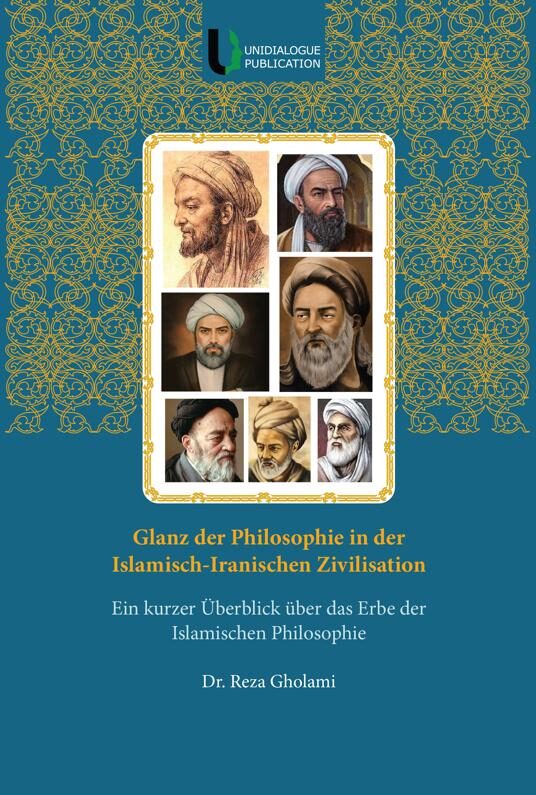
Date: Friday, January 10, 2025
2:00 PM (14:00 Iran Time) | 8:00 AM (Vienna Time)
The philosophical insights of Thomas Hobbes continue to shape contemporary discussions on political philosophy, particularly regarding the state, liberty, and justice. As part of its celebrated lecture series, “The Joy of Philosophy,” the Wisdom House of Iranians in Vienna presents an engaging exploration of Hobbes’ perspectives on the social contract as articulated in his seminal work, Leviathan.
Lecture Details:
Title: Exploration of Hobbes’ View of the Social Contract in Leviathan
Presenter: Dr. Reza Gholami
Senior Lecturer in Political Philosophy, Cultural, and Civilizational Studies
This written lecture by Dr. Gholami offers a fresh perspective on the enduring relevance of Hobbes’ theories in understanding the foundation of political authority and the complexities of governance. Don’t miss this opportunity to delve into one of the cornerstones of political philosophy.
Event’s Code: 010
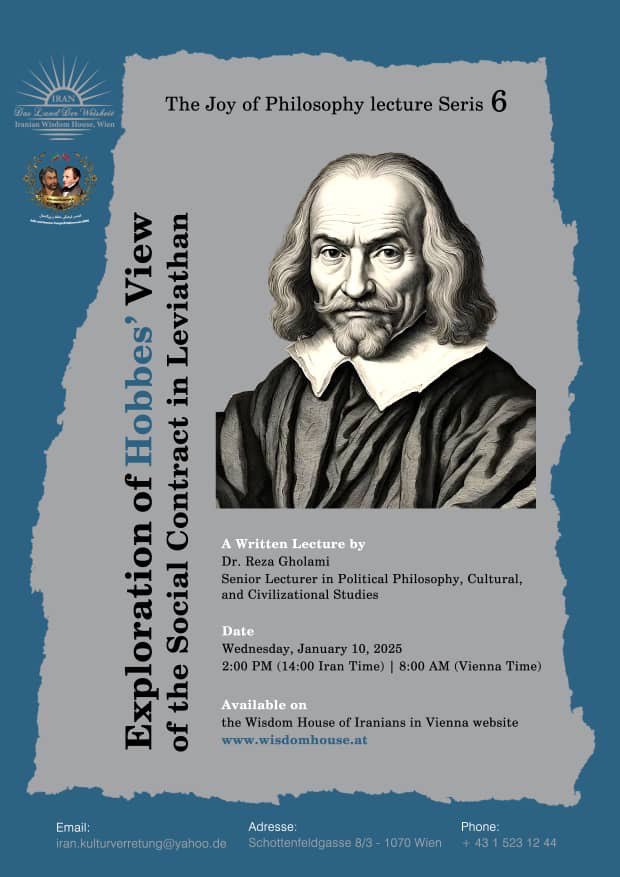
The Wisdom House of Iranians in Vienna has published a detailed 29-page brochure introducing the rich tradition of Nowruz, the Persian New Year, in both English and German. This meticulously crafted brochure offers one of the most accurate and engaging explanations of the Nowruz celebration, which marks the beginning of the solar Hijri calendar.
The brochure delves into the cultural and historical significance of Nowruz, highlighting how Iranians and other nations within the greater Persianate civilization celebrate this age-old tradition. It provides a vivid description of the rituals, festivities, and deep-rooted symbolism associated with Nowruz, making it an invaluable resource for those seeking to understand this cultural treasure.
Availability:
Interested individuals can purchase the brochure by contacting the Wisdom House of Iranians in Vienna.
For further information, visit www.wisdomhouse.at (http://www.wisdomhouse.at/) or reach out directly to the center.
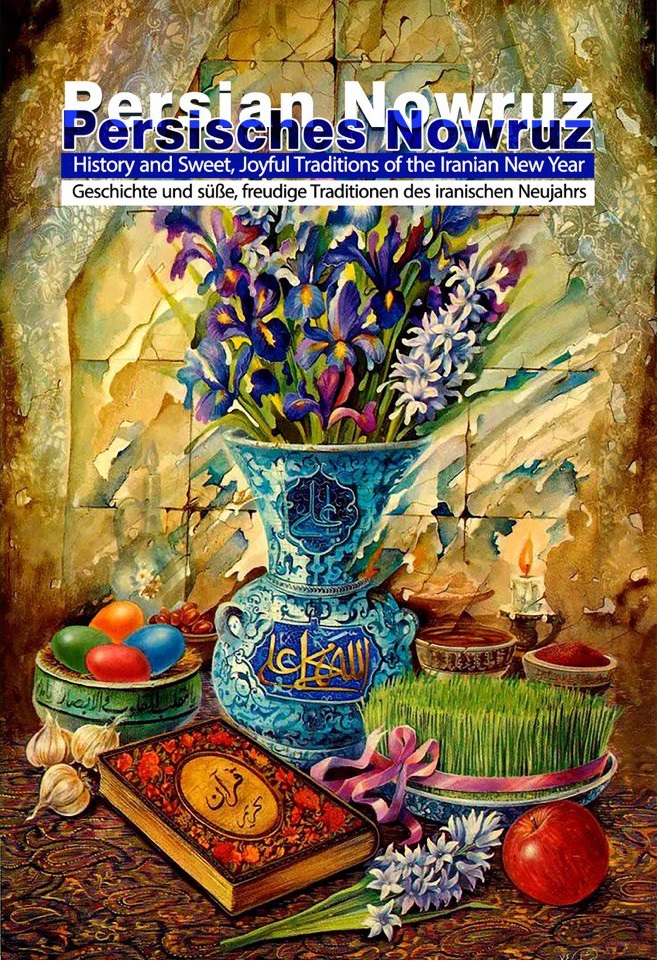
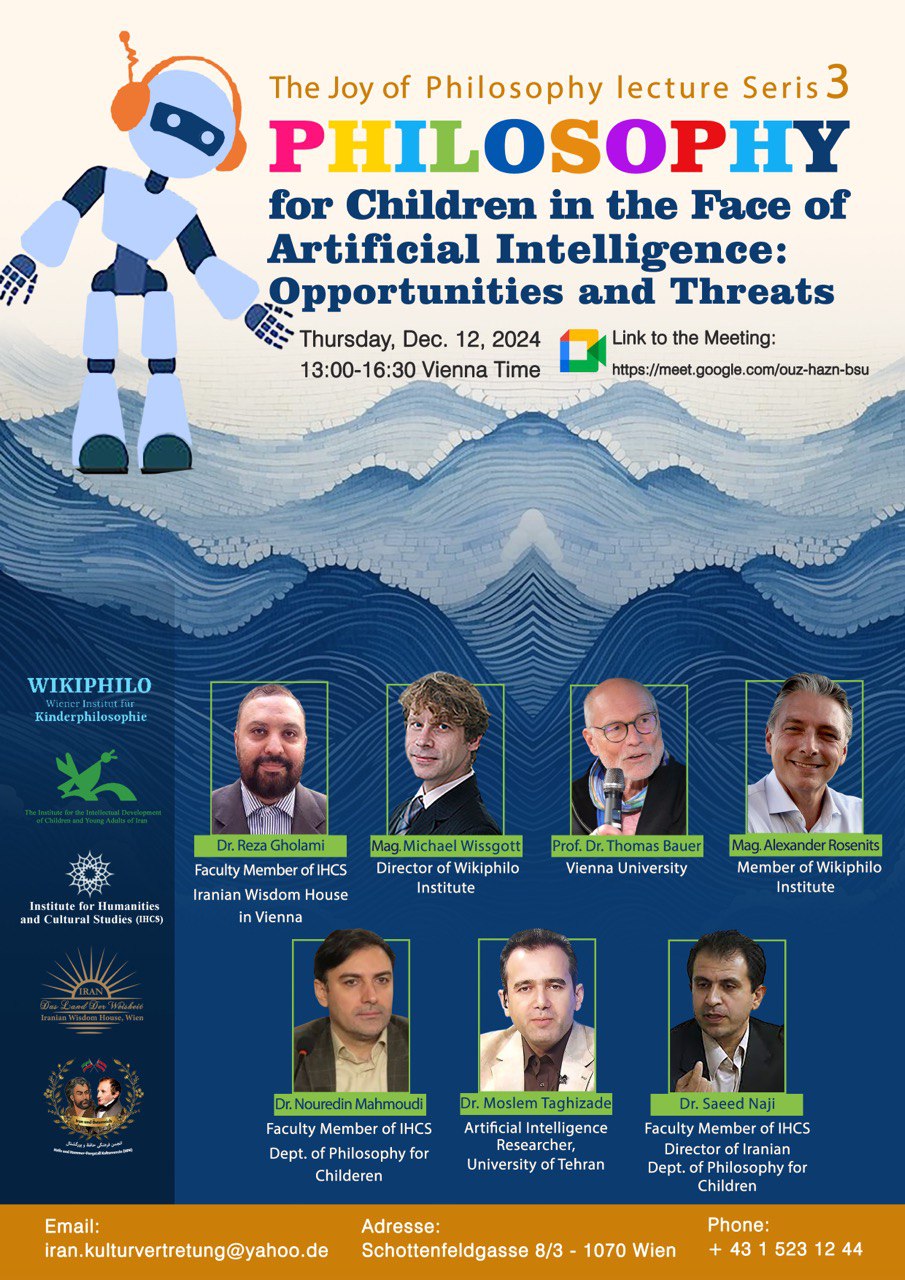
Date: December 12, 2024
Vienna Hosts Seminar on Philosophy for Children and the Challenges of AI
On Thursday, December 12, 2024, a groundbreaking seminar titled “Philosophy for Children in the Face of Artificial Intelligence: Opportunities and Threats” took place in Vienna as part of The Joy of Philosophy Lecture Series 3. This thought-provoking event brought together prominent philosophers, educators, and AI researchers to discuss the future of the Philosophy for Children (P4C) movement amidst the rapid rise of artificial intelligence.
The Philosophy for Children movement, a vital aspect of modern education systems, aims to foster critical thinking in young minds by engaging them with logical reasoning techniques. It encourages children to navigate the complexities of contemporary life by distinguishing between rational and irrational choices, enabling them to make sound decisions. P4C promotes the cultivation of reflective, reasonable, and depth-oriented individuals in a consumer-driven, trend-focused world.
The key question driving the seminar was whether the advent of artificial intelligence poses an existential threat to the P4C movement. Does AI stifle deep thinking, or could it serve as a platform for advancing philosophical engagement among children?
Expert Panelists and Insights
The seminar featured esteemed speakers, including:
• Dr. Reza Gholami, Faculty Member of IHCS and the Iranian Wisdom House in Vienna.
• Mag. Michael Wissgott, Director of the Wikiphilo Institute.
• Prof. Dr. Thomas Bauer, Vienna University.
• Mag. Alexander Rosenits, Member of Wikiphilo Institute.
• Dr. Noureddin Mahmoudi, Faculty Member of IHCS, specializing in Philosophy for Children.
• Dr. Moslem Taghizadeh, AI Researcher at the University of Tehran.
• Dr. Saeed Naji, Faculty Member of IHCS and Director of the Iranian Department of Philosophy for Children.
These experts tackled the challenges AI brings to the Philosophy for Children initiative, emphasizing its potential to both threaten and enhance philosophical education. Discussions underscored that while AI may present risks—such as reducing the emphasis on critical thinking—it also offers unique opportunities for expanding the reach and depth of philosophical inquiry.
The seminar highlighted the pivotal role of AI technology leaders, educators, and parents in shaping how AI integrates into philosophical education for children. Responsible engagement with AI could turn it into a tool that fosters rather than hinders deep thinking and rational decision-making in younger generations.
This seminar was organized by the Wisdom House of Iranians in Vienna in collaboration with the Wikiphilo Institute and the Iranian Institute for Humanities and Cultural Studies (IHCS). For more information about the event, visit www.wisdomhouse.at.
Event’s Code: 009
The written speech by Dr. Reza Gholami on December 3, 2024, at the House of Iranian Wisdom in Vienna, Austria
Hannah Arendt is one of the most prominent thinkers of the 20th century whose ideas have profoundly shaped our understanding of politics, power, freedom, and totalitarianism. Her works, including The Origins of Totalitarianism and The Human Condition, go beyond merely analyzing historical events. They represent an effort to rethink the foundations of politics and collective human life. Arendt, with her critical yet original perspective, dissected the crises of modernity and explored the collapse of values and institutions essential for preserving human freedom and dignity…
Event’s Code: 008
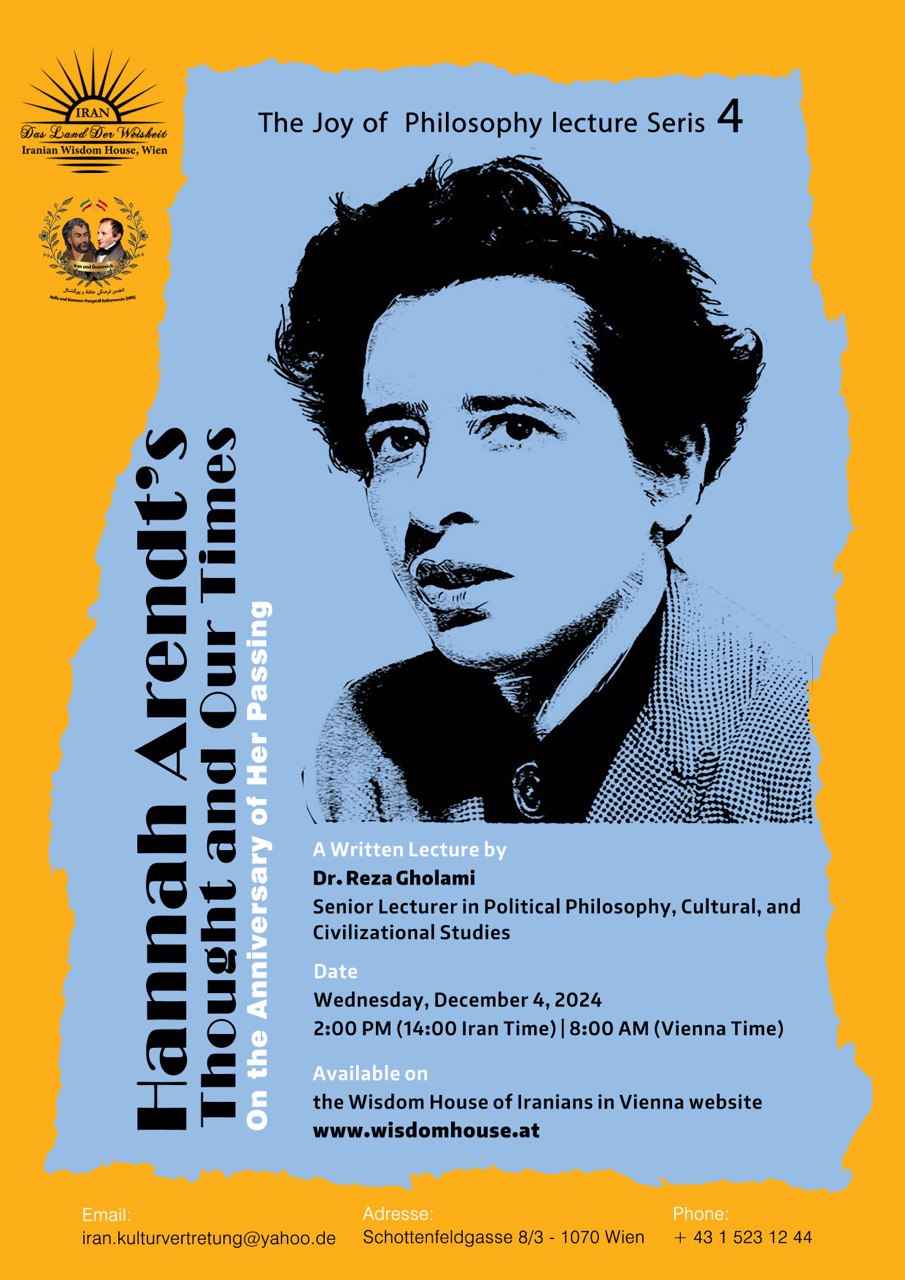
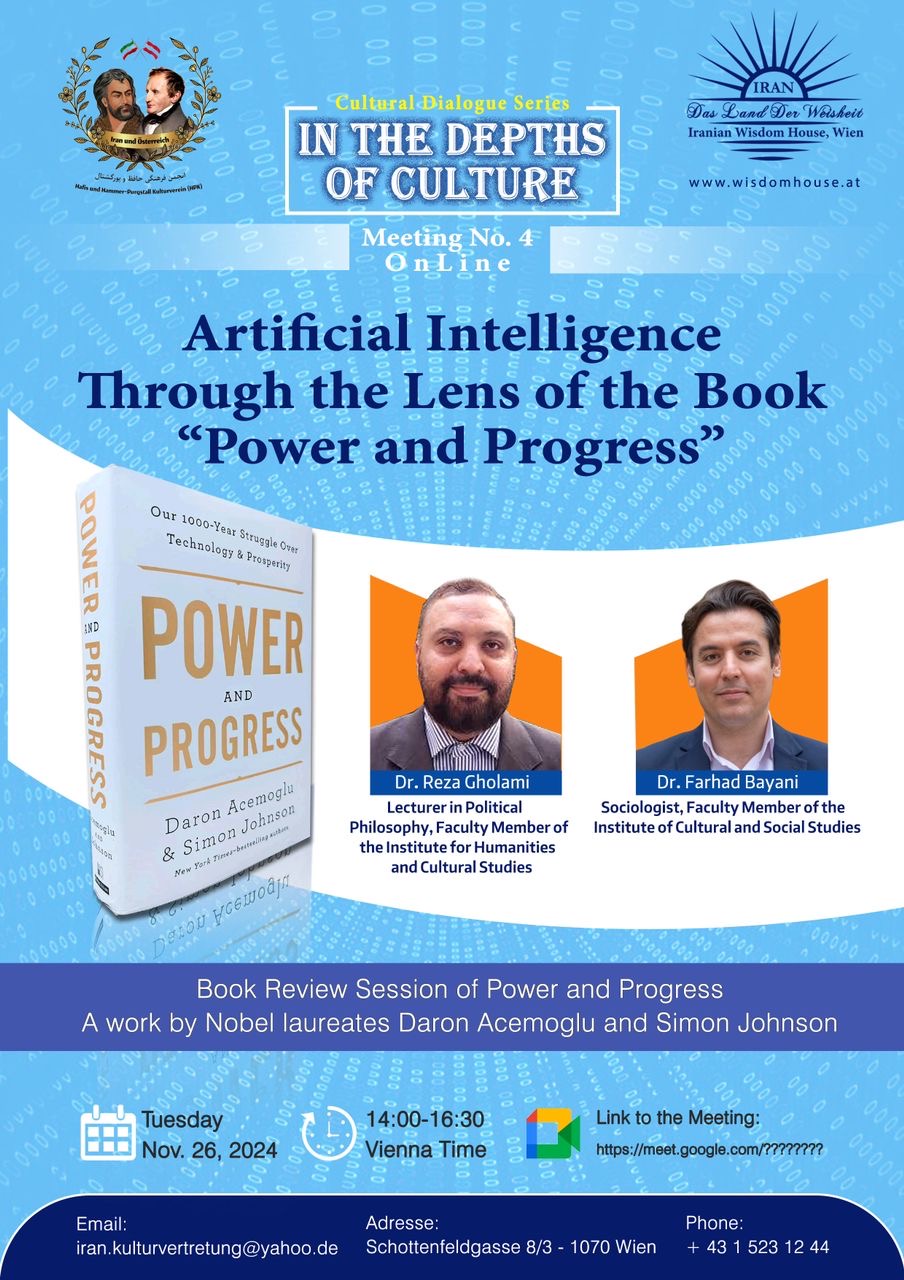
Date: November 26, 2024
A meeting on the book Power and Progress by Professors Daron Acemoglu and Simon Johnson—both renowned academics, with Acemoglu being a recent Nobel laureate in Political Economy—was held at the Cultural Office of the Islamic Republic of Iran in Vienna on November 26, 2024. The discussion focused specifically on the book’s analysis of artificial intelligence (AI). Dr. Reza Gholami and Dr. Farhad Bayani, two prominent Iranian scholars, led the session.
Dr. Farhad Bayani, a sociologist and faculty member of the Research Institute for Cultural and Civilizational Studies opened with a concise overview of the book, emphasizing its examination of the interaction between technology (especially AI) and socio-economic structures. The authors argue that AI’s impact depends on societal choices and the distribution of power. While AI can enhance productivity, it also risks intensifying inequality. They advocate for policies that steer technological development toward collective well-being and support innovations that complement human skills.
Dr. Bayani highlighted the book’s strengths, including its integration of economics and history, clear narrative, focus on pressing human challenges, and policy-driven recommendations. However, he critiqued the book for oversimplifying social complexities, offering broad generalizations, neglecting cultural and historical nuances, and maintaining a narrow definition of progress. Additionally, he pointed out biases in the authors’ approach and a lack of originality in their theoretical framework.
To address these shortcomings, Dr. Bayani suggested that future editions explore global AI governance, emphasize lifelong learning and skill development, and integrate ethical and cultural considerations into the analysis. He concluded by calling for a more comprehensive engagement with the intersection of technology, society, and global governance to ensure AI advancements benefit humanity equitably.
Dr. Reza Gholami, followed by elaborating on the book’s central focus: job displacement caused by AI. He described the book’s framework as rooted in economic liberalism and its methodology as historical. He noted the authors’ dual aim of fostering global economic growth and leveraging AI for public welfare, while rejecting collectivist approaches. He characterized their vision as advocating a moderate and justice-oriented economic liberalism that seeks to balance individualism with democratic reforms to regulate AI’s development.
While acknowledging the book’s emphasis on democracy and formal institutions for managing AI’s risks and benefits, Dr. Gholami reiterated Dr. Gholami’s critique, noting the neglect of broader social and international dynamics.
The meeting concluded with a Q&A session, during which the scholars addressed four questions from the audience, further deepening the discussion on the societal and global implications of AI as presented in Power and Progress.
Event’s Code: 007
Date: September 30, 2024
On September 30, 2024, the Pre-Meeting of the 1st International Conference on Philosophy for Children took place as part of the Cultural Dialogue Series (Austria), Meeting No. 3, under the theme In the Depth of Cultures. Dr. Reza Gholami, Senior Lecturer in Political Philosophy and Cultural and Civilization Studies, Vienna, chaired the meeting and delivered an opening address on the significance of philosophy for children. He emphasized the transformative effects of philosophical inquiry on children’s intellectual and emotional growth, outlining the long-term benefits for human development, including enhanced critical thinking, creativity, and empathy. Following this introduction, Dr. Mohammad Reza Vaez Shahrestani from the Universität Bonn, Germany, gave a presentation on Kant’s Maxims of Common Human Understanding in the Community of Philosophical Inquiry. Dr. Saeed Naji from the Institute for Humanities and Cultural Studies, Tehran, Iran, then spoke on Verisimilitude in the Community of Inquiry. After these presentations, an interactive Q&A session was held, allowing participants to engage with the speakers by asking questions and deepening the discussion on the topics presented. Please note that no audio or video recordings of this session were made, but the outcomes and discussions will be published in written form in the near future.
Event’s Code: 006
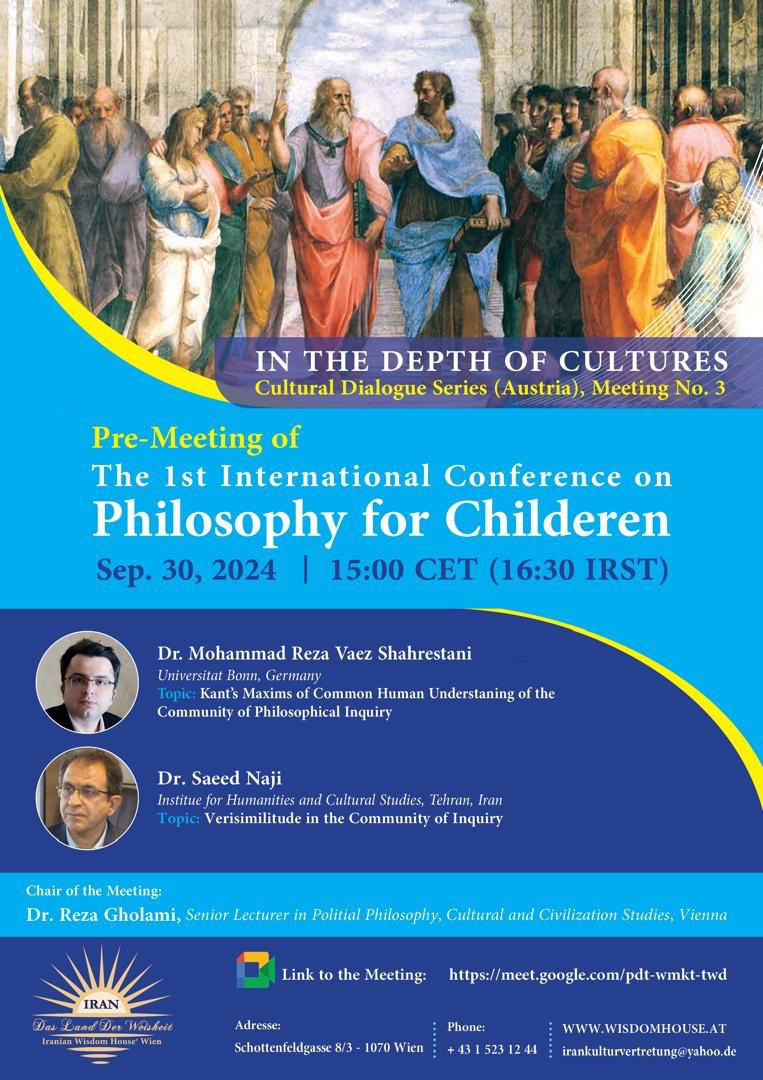
Date: July 25, 2024
In the session *Development of AI and Humans: From Partnership to Competition*, held both in-person and online on July 25, 2024, three top Iranian researchers from Europe and Iran delivered speeches on various aspects of artificial intelligence. The session was moderated by Dr. Reza Gholami, senior lecturer in political philosophy and cultural and civilizational studies. The first speaker, Dr. Abutaleb Safdari, a postdoctoral researcher at the Institute of Philosophy, University of Bremen, Germany, gave a talk on *”Embodied Partnership with Machines: Observations from Mars Exploration.”* The second speaker, Dr. Hassan Bahrami, who holds a PhD in computer science from the University of Technology Sydney, Australia, addressed the topic: *”Can AI Replace Human Consciousness?”* The third speaker, Dr. Mohammad Hossein Moghadam, Assistant Professor of Foresight and faculty member of the Institute for Social and Cultural Studies (ISCS) in Iran.
Event’s Code: 005
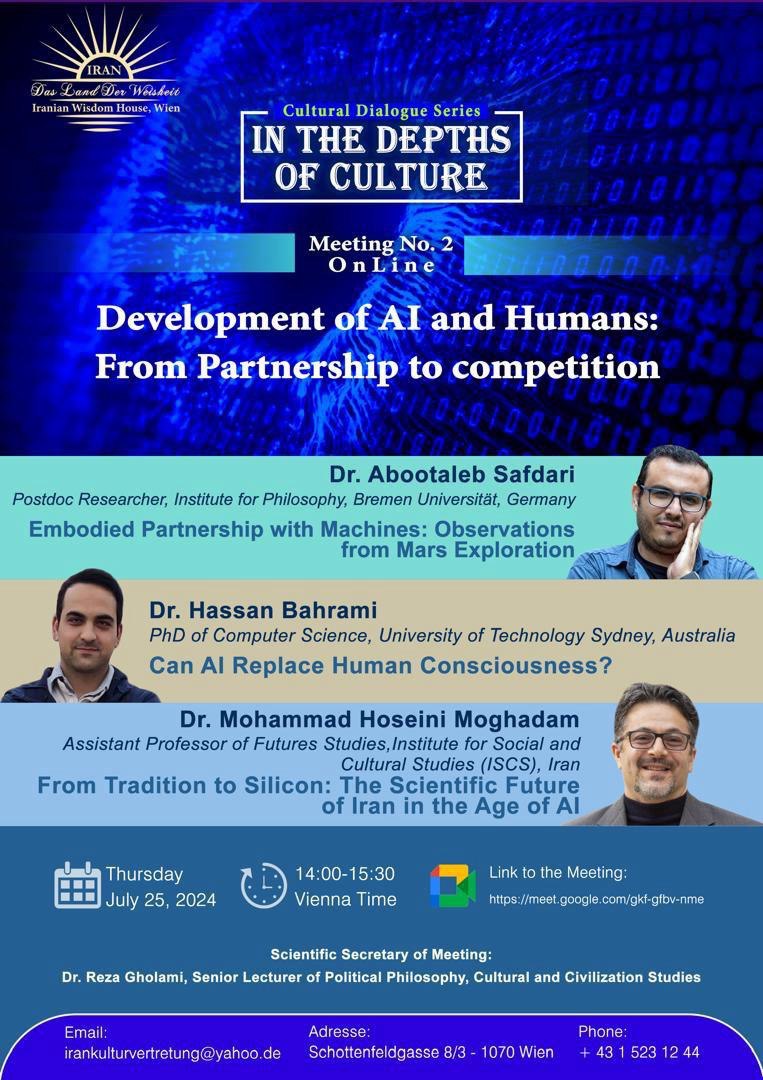
Date: July 2, 2024
In the scientific session titled *U-turn in Understanding of Culture in the Cognitive Science Era*, held on July 2, 2024, from 11:00 to 12:30 (Vienna time), both in-person and online at the House of Iranian Wisdom in Vienna, Dr. Leila Ardebili, a faculty member at the Institute for Cultural, Social, and Civilizational Studies at the Ministry of Science, Research, and Technology in Tehran, and Dr. Fatemeh Shafiei, a cognitive science expert and active researcher in linguistics and culture, delivered speeches. The scientific management of the session was led by Dr. Reza Gholami, senior lecturer in political philosophy and cultural and civilizational studies. The full recording of the speeches is available for those interested at the following Button:
Event’s Code: 004
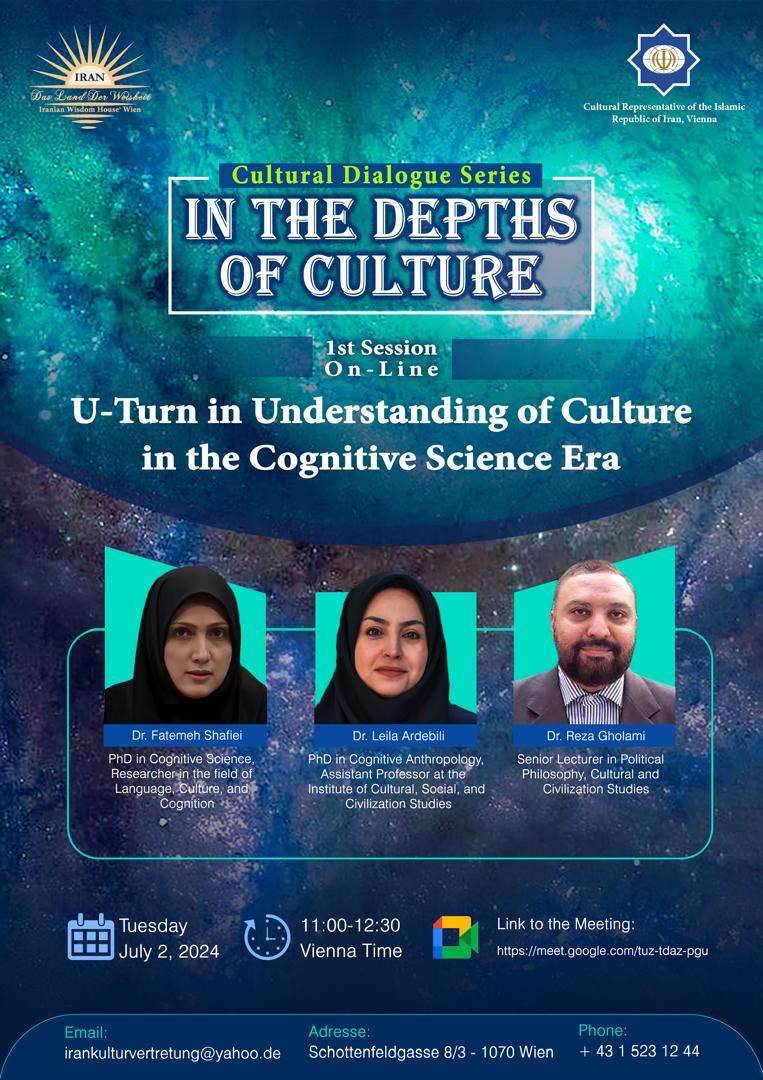
Date: June 26, 2024
This series of lectures, which begins on June 26, 2024, will be held weekly on Tuesdays. Professor Reza Gholami will explain the most important theoretical problems in the field of justice studies. The series is expected to consist of 16 sessions. The text of these lectures will gradually be made available for interested individuals on Dr. Reza Gholami’s personal website:
Event’s Code: 003
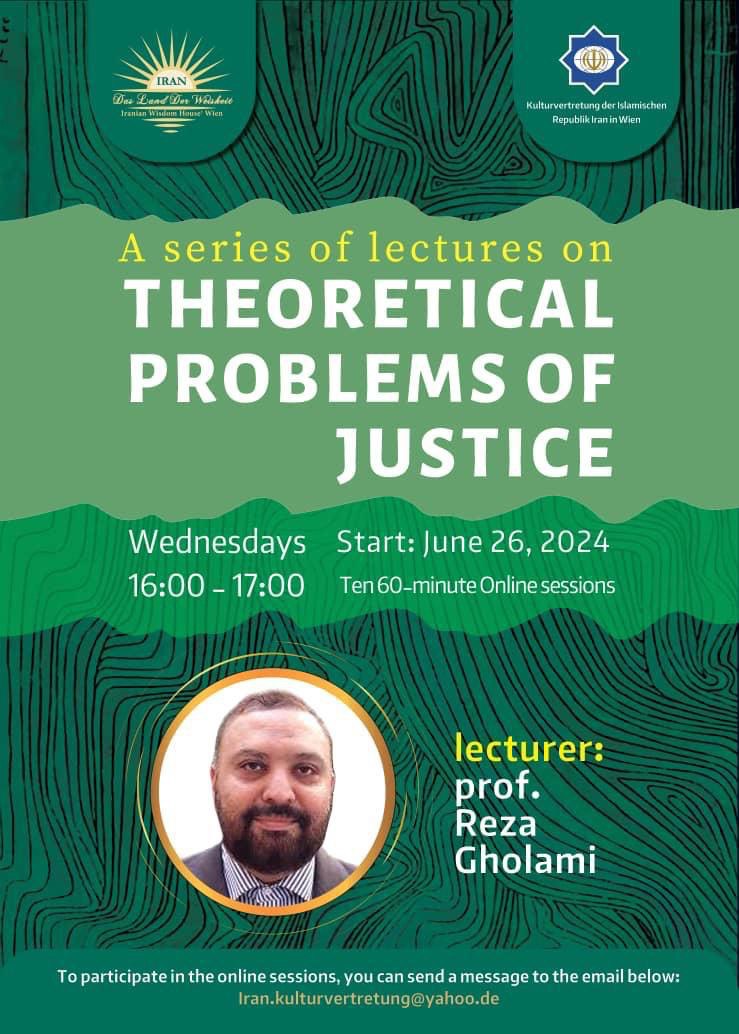
Date: May 31, 2024
The *Forty Hadith* is one of the well-known books in the field of ethics and self-purification, authored by Imam Khomeini. In this book, following the recommendation of the Prophet of Islam for every Muslim to preserve and spread forty hadiths, Imam Khomeini selected forty moral hadiths and provided explanations for each. During this session, held on May 31, 2024, Professor Ahmad Moballeghi, a prominent scholar and intellectual from the Seminary of Qom, introduced the *Forty Hadith* book and specifically chose one hadith from the book to elaborate on. The full recording of Professor Ahmad Moballeghi’s speech is available for interested individuals at the following Button:
Event’s Code: 002
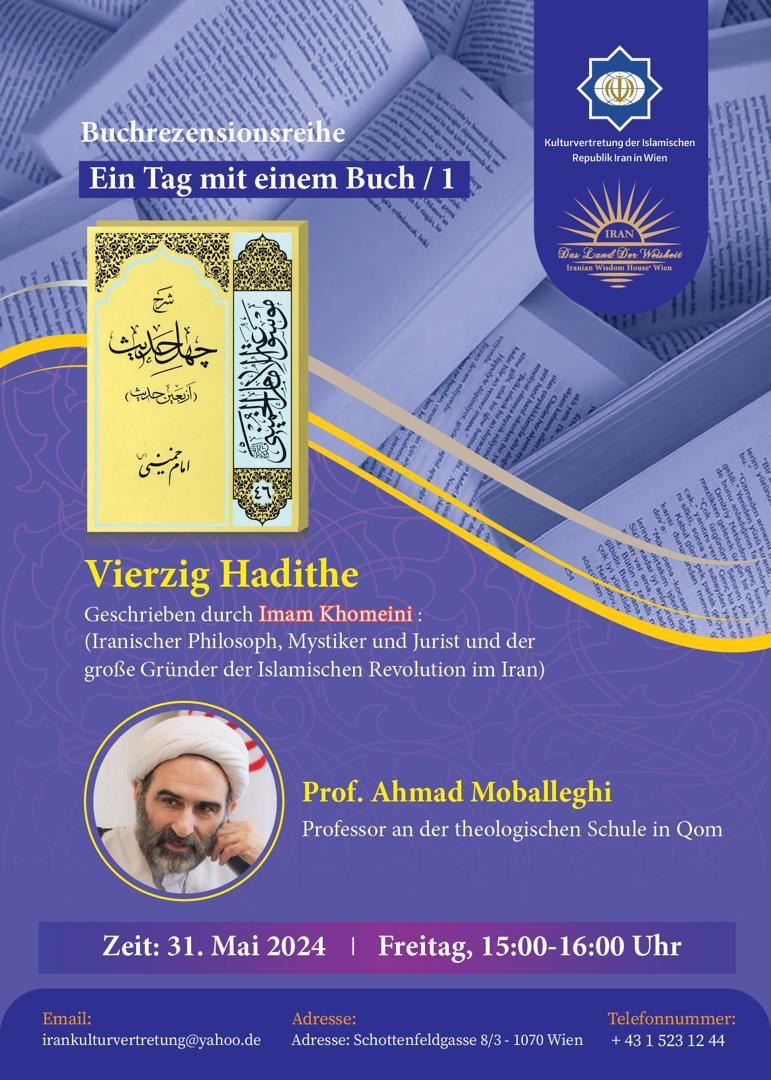
Date: May 21, 2024
This academic meeting, held on May 21, 2024, both in-person and online at the House of Iranian Wisdom in Vienna, featured speeches by Dr. Sharif Lakzaei, a faculty member at the Islamic Sciences and Culture Academy in Qom, and Dr. Reza Gholami, a faculty member at the Institute for Humanities and Cultural Studies. The full recording of Dr. Sharif Lakzaei’s speech is available for interested individuals at the following Button:
Event’s Code: 001
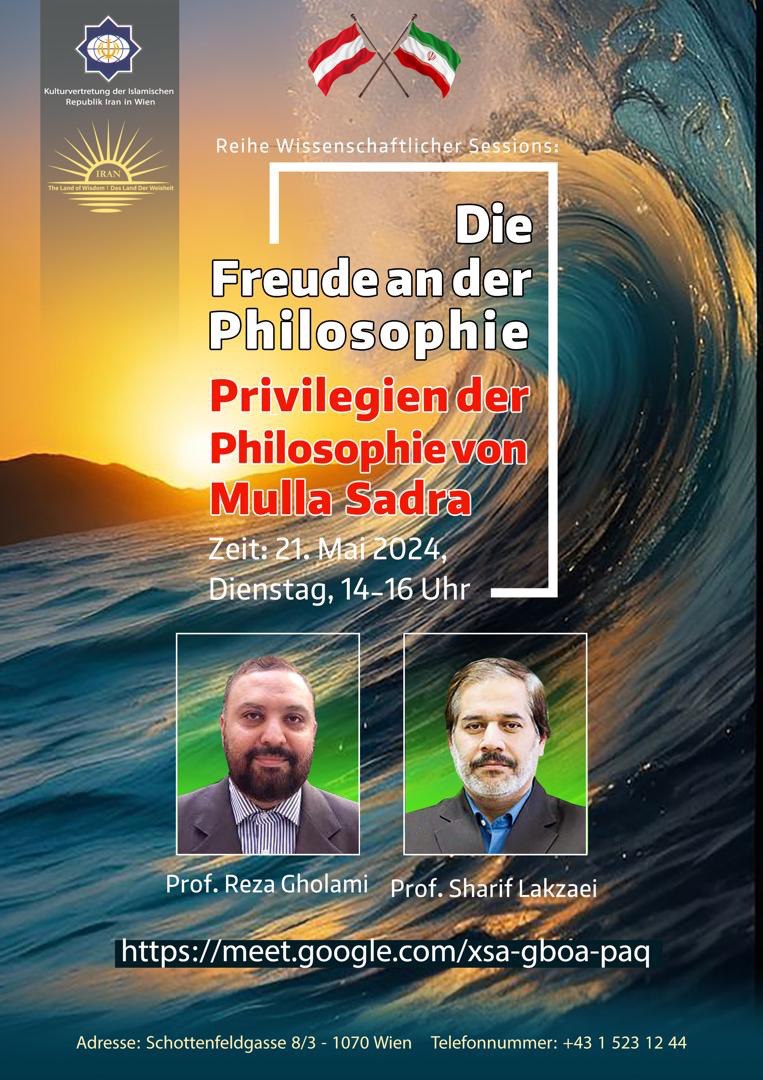
Please leave your comment here:
